





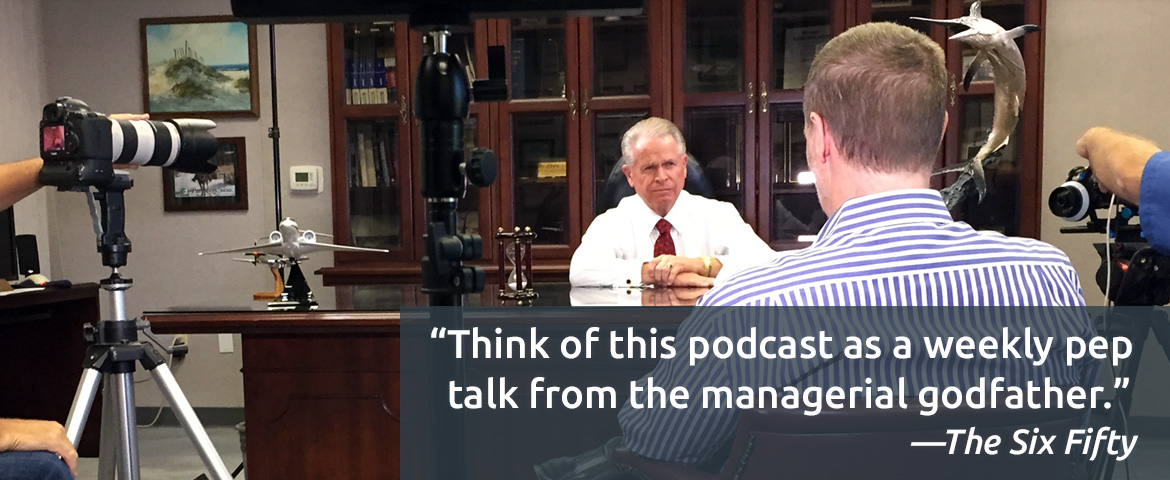
Tough Things First Podcast
The Tough Things First podcast is where you receive short bursts of Ray Zinn’s leadership, executive and entrepreneur’s wisdom. Tough Things First podcasts are typically five minutes long, giving you one important concept to ponder for the rest of the day.
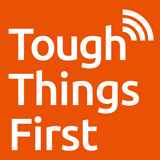
Subscribe to the podcast via:
iTunes | Spotify | Google Podcasts | Stitcher | Pocket Casts | TuneIn | RSS
- Sep0620170
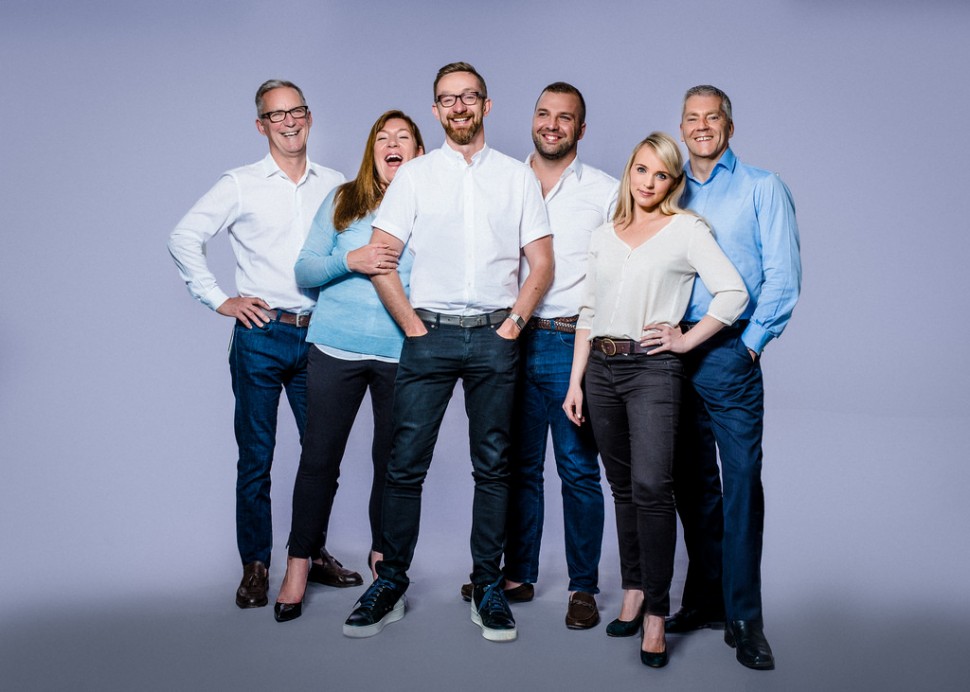
Employee Engagement
Read moreLow employee engagement is costly, but there are solutions. In this Tough Things First podcast, Ray Zinn discusses what a CEO can impact the day-to-day engagement levels of employees.
Rob Artigo: I’m Rob Artigo, guest host for this edition of Tough Things First with Ray Zinn. I’m a screenwriter and entrepreneur. Happy to be back again, Ray.
Ray Zinn: It’s a wonderful, beautiful day today, isn’t it, Rob?
Rob Artigo: And of course, it’s always a great time for a conversation in the podcast. Great place to learn and find out a little more about being an entrepreneur in the modern times.
So, here’s a pretty stunning figure. It definitely was to me when I found it. I was doing a little research on this subject and I found a Gallup poll from 2014, and I suspect that things are pretty similar now. It said engaged employees are rare. Engaged employees are rare, and so it was the State of the American Workplace report that said just 33% of employed residents in the United States are engaged at work, and that’s hardly more than three of ten employees in your company. Does that sound right to you, Ray?
Ray Zinn: It is. And what I’ve noticed when I did my walking around and visiting the various departments, I’ll notice certain people had their earphones in their ears, or they’ve got headphones on, and they won’t even hear me go by because they’ve got noise-canceling on and they’re listening to some music or something else. That just tells me they’re just not engaged.
Now, when I ask them about it … When I ask them to pull their earbuds out, or they turn their headset off, I say, “Hey, what are you doing?” They say, “Well, it’s not as distracting if I have my headset on.” I said, “It’s gotta be distracting because you’ve got to be listening to something on the other end, and I don’t know how you can concentrate on both things.”
Another thing I’ve noticed that they’re on the phone, cell phone, or they’re watching a football game or a baseball game or something at the same time that they’re working. And that, to me, is just not being engaged. Some just don’t even care. Some just putting in the time. Maybe they don’t like their job, they’re not interested in what they’re doing, and they just passively put in their hours and not really get a lot done.
Rob Artigo: Let me give you another example along those lines. You mentioned the headphones thing, and we’ve all seen this. Anybody who’s done any exercising, maybe a bike path … So, I’m a cyclist, and I ride out on the bike path, but I see people running, I see people walking and they have their headphones in on their bicycles, on the road, sharing the road with traffic and they have headphones on.
Ray Zinn: How dangerous.
Rob Artigo: It’s dangerous. I don’t understand. You need that sense. That’s one of your senses that keeps you alive, your ability to hear. It really is distracting. It doesn’t matter if somebody claims that it’s not a distraction. At work, I don’t mind if there is, in some cases, if you have a little radio that has a little bit of music on or something that’s soothing. Maybe a little bit soothing and relaxing throughout the course of your workday. I, as a boss, don’t really mind that so much, but if you have your headphones on, you’ve got the Giants game on in a small screen because you now can stream everything … You’ve got your Giants game streaming on the top corner of your computer screen. You’re coding like crazy on your page. I would say coding as fast as you can under the circumstances, considering you’re distracted. And then on the other thing you’ve got Facebook open, so you’re doing that, and maybe you’re blogging something. Let’s face it, it is a distraction to have headphones in and have all the distractions that you have available to you, and you can’t be engaged.
So, 33% certainly makes sense.
Ray Zinn: Yeah. Well, we had a company policy that prohibited people from doing these things. Listening to football games, basketball games, or other sports events, especially when the world soccer tournament came on. They were just glued to their iPhones or they’re streaming the results.
As much as we tell them not to do it, they still figure out a way to do it anyway.
Rob Artigo: What we want to do in this podcast is really hit to the meat of this matter, which is what we can do as bosses. As a CEO, you have to multitask without sacrificing essential oversight to day-to-day company productivity. And when we’re talking about engagement here, how does a CEO of a growing business have an impact on the day-to-day engagement levels of the employees? We’ve talked about what drives that dynamic, but how does the CEO have that day-to-day impact on engagement?
Ray Zinn: He has to set the example. If he’s got earbuds plugged in his ears, or he’s off streaming a football game, basketball game, whatever, then he’s not setting the example. The first thing he does is sets the example.
The next thing he can do is encouraging his staff to see that their people are also following company policy regarding these sorts of things. And then, of course, when I was CEO, I did a lot of walking around. I just visited different departments to see how they were operating, and I could tell those departments were lax because I saw a lot of that streaming of video and listening to music or whatever on their earbuds.
It is a distraction. People, of course, get in the habit of it, and they can’t live without it.
I notice when I come into my wife’s office here at home, she’s got these news stations on. I said, “How can you concentrate with all this background noise?” It just becomes more like a white noise. They may not be paying attention to what is being played or said, but it becomes a habit. Like people who can’t sleep without a fan going. This white noise, I think, is a distraction, and something that we should try to avoid.
As a CEO, the best thing you can do is set the example and insist that your staff does the same thing. You’ve got to walk the talk.
Rob Artigo: You just talked about what’s the most important thing, and I wanted to ask you about this because it came to mind, and that is what about simply making sure that people are taking … We have state law that says you have to take a break at certain times. Making sure that people take those breaks and get caught up on whatever they want to get caught up on on those breaks rather than doing it during the course of the workday throughout.
Ray Zinn: That’s certainly an approach. People do have to take breaks during the day. I have some people that take a walk. In other words, they get out of the office and walk around the block, as they say. I’ve seen them do that. I think getting away is okay as long as it’s not to excess. Ten, 15 minutes at the max a couple times a day, I think, is probably acceptable.
Rob Artigo: For more information on Tough Things First, the book, on how to reach out to Ray on Facebook, and via email, you can go to toughthingsfirst.com, and make sure you refer a friend. Right, Ray?
Ray Zinn: Yeah, thanks, Rob. And, hey, if you have questions or some concerns, please feel free to email us or call us. We’ll be happy to answer your questions on the air.
Rob Artigo: You get the terrific resource. Thank you again, Ray.
Ray Zinn: Thanks again, Rob.
- Aug302017

When to Take on Debt
Read moreRay Zinn, the longest serving CEO in Silicon Valley, is famous for having leveraged himself, and not venture capital, to launch semiconductor company Micrel. Ray discusses the situations that make initial debt financing a smart move.
Guy Smith: Good morning, everybody, and welcome to the Tough Things First podcast, where we pick the brain of Mr. Ray Zinn, the longest-serving CEO in Silicon Valley. Speaking of Silicon Valley, it’s another sunny morning here and good morning to you, Ray.
Ray Zinn: Thanks, Guy. I appreciate after all this rain, we get a little sun coming out.
Guy Smith: Rain is necessary for life and so we shouldn’t complain about rain too much.
Ray Zinn: No, I’m not complaining. I’m just saying it’s nice to get a little sun once in a while, though.
Guy Smith: I was looking up plans for an ark before it finally broke, and it’s about the right timing. One of the things I want to talk about, and this a constant source of fascination for me, is the subject of debt. I don’t like the stuff, personally, but when people are starting their own companies, they have to raise money. It’s nice to go after venture capital money, but you’ve been very clear about the downsides of venture capital. There are only so many friends and family you can pick on and so some people choose to go into debt. I know that leveraged yourself fairly significantly when you started Micrel over 37 years ago. Let’s talk about when people should consider debt in order to get their business started. What situations make initial debt financing a smart move?
Ray Zinn: Going back to my time when I started Micrel, I did not want to use venture capital and, certainly, I had no family members that I could rely on. My dad had just passed away and my mother was teaching school. I still remember my siblings were at home, and there was no family that I could go to, nor did they have the resources anyway to loan me the money.
That meant I had to either consider angel money, which is a form of VC, or to go to the bank. You remember, if you’re going to take on debt, if you’re going to go to a bank, they want paid back, so you have to have a profitable company. There’s no way you’re going to get a loan from a legitimate bank if your company is not going to be profitable. A lot of startups aren’t profitable. It takes maybe two or three years for them to hit profitability.
There may be a few opportunities for them to raise money if you put up what we call personal guarantees. If you put up significant assets to cover that debt, some banks are willing to give you a period of time, a grace period, to get the company to profitability so that you can pay off the debt, because if it doesn’t happen, they’ll just collect on those personal guarantees. The strength of a person’s net worth will determine how much the bank is willing to loan them.
Let’s say you have a $200,000 home and you had $100,000 in equity in the home, the bank will loan you probably $50,000 on that equity. That’s kind of the way it works. If you’re going to borrow money, you either have to have assets to support it, meaning that it’s almost like a personal loan, or you have to have your company profitability such that the bank can see you can make the payments on that debt. That determines, really, how much debt you can take on and what banks will be willing to loan you the money. Banks loathe to loan to startups because they’re not an ongoing business in their minds.
Guy Smith: I can see a trap that some startups might get in, where they accept venture capital up front, but they do become profitable and, to go to that next round of growth, they might want to consider debt financing, which would make a lot of sense. I bet you the venture capitalists that were in those early rounds pull out the large sticks and try to keep the CEO from leveraging the company through debt at that point. Is that factual?
Ray Zinn: That’s true. That is a point. If you’re with the proper venture capital group, doing a bridge loan or getting a loan is not something that is done regularly. The venture capitalists can’t force you unless they own the company. Unless they have 51%, they can’t force you to borrow money from them. Certainly, you have, as the CEO or the chief financial officer, you have the right, if you’re the primary holder of the company, then you can just go get financing wherever you would like. There are a number of ways to do that. There’s equipment financing through leasing, there’s typical bank debt, there’s revolving lines of credit, you can borrow against your receivables, so there are a number of ways that you can borrow money. You just have to look at what’s going to best suit your needs and your company.
Guy Smith: Being risk-adverse myself, I try to stay away from debt. I’ve got to imagine that there are certain moments during the growth of a company when debt would really be a dumb idea. When should a founder run away from debt? When should they say, “No, that’s the last thing I want to do?”
Ray Zinn: If you don’t need the money, obviously, there’s not need to borrow it. If your company’s not making money, run away from it. Banks will be all over you if you can’t make that debt service. They have the right, actually, to shut you down. They can push you into bankruptcy. They’re going to set is ss the primary holder of the debt and they can push you over the edge. They’re not going to mess around. They’ll give you a little leeway, but they’re going to be hounding you to start making the payments.
You’ve got to be profitable and you have to have a way to pay off that note. Being risk-adverse is fine, but that won’t help you borrow money. It’s a matter, again, how much debt you need to take on and for what purpose. That’s the other thing that the bank is going to be looking for, is where and how are you going to use this money.
Guy Smith: I’ve seen a couple of startups get into trouble by doing the opposite path on debt, extending a little bit too much credit to their customers and eventually getting into a non-repayment system. You spoke in your book, Tough Things First, about stall horns, financial warning systems that tell the CEO something really bad is getting ready to happen. When it comes to extending debt to customers, what kind of stall horns might a CEO put in place to make sure that they aren’t being a little too giving and a little too generous with customers?
Ray Zinn: That’s a good point, Guy, because the typical payment is net 30 days. That’s what we see as generally the case. If you’re extending credit to a company that doesn’t have good credit, you want to do letters of credit or you want to do money up first. I think one of the problems that companies get into is that they start extending credit to people they shouldn’t. That’s the warning sign, is don’t extend money to companies that can’t pay, or that they’re not likely to pay. That’s the stall horn that comes on. If you do a credit check, and you should, always do a credit check. If you do a credit check and that company does not look like they have the ability to pay, don’t give them the product, which is the same thing as loaning the money.
Guy Smith: Pun intended, but I think we’re all in your debt today for kind of marshaling us through these issues. Thank you for your time again, Ray, and to all the listeners out there, by all means, go to toughthingsfirst.com, connect up with Ray personally in social media, on Twitter, on Facebook, on LinkedIn. If you have not already, make sure to get that copy of Tough Things First. It is probably the best education you’re going to get in leadership management and just getting by in life in general.
- Aug232017

The Worst Things a CEO Can Do
Read moreEmployee engagement is traditionally very low, but a careless or complacent CEO can make things even worse. In this Tough Things First podcast, legendary Silicon Valley CEO Ray Zinn talks about the WORST thing a CEO can do if he or she wants to improve company morale and employee engagement?
Rob Artigo: I’m Rob Artigo, guest host for this edition of Tough Things First. I’m a screenwriter and entrepreneur in California and as always, I’m happy to be back again. Ray?
Ray Zinn: I’m likewise, Rob. Thanks for joining us.
Rob Artigo: Sure. Always, always fun. On another podcast, we talked about employee engagement, which apparently is remarkably low, generally, and how a CEO can have a positive impact on that. I’d like to tie engagement to morale and ask you this. What’s the worst thing a CEO can do if the goal is to improve engagement and morale?
Ray Zinn: Well, you know, the thing I like the least, of course, is people who are whiners. They complain. That drives me absolutely bonkers. How do we avoid or how do we minimize the complaining is by having good communication, whereby making sure our employees understand the role and the mission of the company and what their particular role is.
Rob Artigo: Have you found, in your experience, that most employees really understand their roles or that it requires some help? Sometimes, people hire somebody and they go, “All right, here’s your job.” It’s like the old cannon concept, “Fire and forget.” Just fire and forget. You just throw them out there and go, “Okay, go,” but I don’t think it’s always the case. I think most often, it’s not, where the employee doesn’t always fully understand what they mean to the company and the real purpose intended by the managers who hired them.
Ray Zinn: That’s the mistake of a manager. If your employee does not understand his role or his responsibility, that’s the fault of the manager. The manager is the one that sits down with his employees on a regular basis, ask them how they’re doing, how they like their job, what can we do better, and don’t wait until review time to sit down with your people. You got to do it on a regular basis.
Maybe once a week or at least twice a month, sit down with each of them, individually and just kind of get a little bit of a sense of how they’re doing and how they like their work, and if they’re not enjoying what they’re doing, they’re certainly not going to do a very good job for the company.
The best thing to improve company morale is to make sure your employees are engaged. The more excited they are about their job, the more likely they will come to work on time. They won’t be spending time on the radio or the TV screen and stuff or listening to music or taking walks. They just can’t wait to get to work and be involved in the business of the company.
Rob Artigo: See, to me, that’s what an engaged employee is, and I think an engaged employee is, by nature, someone who has a good – yeah. Right. The morale is high. Yeah. If you’re engaged and your morale is high, then your productivity is up there because you’re in fact doing more oftentimes, as an engaged employee, than is required of you. You’re just generally that much more productive.
Ray Zinn: What the manager will find is that the employee gets his work done on time. Work is done well. They seem to be happy. They’re smiling. They’re engaged. That’s the key, as a manager, when you’re interfacing with your people.
Look at their demeanor. Do they look happy? Do they look contented and enthusiastic? Are they asking questions? Do they want to do more? Have they come to you and said, “Hey, is there something more I can do? Is there anything else I can help the company with?” That indicates to me a happy employee.
Rob Artigo: How much more is an employee like that worth to a company? I’m not talking about financially, how much you would pay for that person, but I’m just saying, as an individual in the company, how much more is a person who is engaged with high morale than a person who just comes and does an adequate job but [crosstalk 00:04:59]?
Ray Zinn: They get 20% more done. They get 20% more done. That’s my experience is that the happy employee does 20% more than the unhappy employee.
Rob Artigo: What does the engaged, high morale employee get in return? Longevity? What does it …
Ray Zinn: Absolutely. Lots of loyalty. If you’re loyal to the company, the company will be loyal to you. I know that’s not true in all cases, but that’s the way it should be. If you’re loyal, they’re loyal and you’re more likely to get promotions. You’re more likely to get higher, better reviews, better merit increases. You sow, so shall you reap. In other words, you put your whole heart into it. You’re going to get it in return. Anyway, this is what I have observed in most cases.
Rob Artigo: Let’s not forget that the employees, in some cases, are managers in the chain of command, so those managers are employees as well. Managers, just like anybody else, can be disengaged and can have a low morale and the same things apply. Same thing that can affect an employee who is working a data entry job at entry level and then versus somebody who’s a mid-level manager. Those same dynamics apply.
Ray Zinn: Absolutely. We’re all employees. Even the CEO is an employee. If you’re not showing interest in your job, if you’re not engaged, you’re not going to be a very effective CEO. The way you tell how a morale is is you can look at some indicators like turnover, how many people are leaving the company and the reasons why they’re leaving. That’s another way you can measure how the company’s doing is look at the reasons that their employees are leaving. Look at how your projects are doing, how quickly they’re getting done. Just how people are engaged and talking to each other. The less hostility there is. That’s another indicator that things are going well, so a happy workplace is a productive workplace.
Rob Artigo: Was it your own on-the-job experience or watching others tried and failed that really helped you understand what to do and what not to do when it came to engagement and morale?
Ray Zinn: Yes. Absolutely. We learn through experience. In the 37 years I was running Micrel, I get better and better at it every year, and so that which you persist in doing, you will do better. You will improve.
Rob Artigo: Which is why we always ask people to return to toughthingsfirst.com and listen to the other podcasts because it’s somewhat of a master’s class here at Tough Things First, and this podcast is just one part of it. You can subscribe to the podcast at toughthingsfirst.com. You can follow Ray at Tough Things First on Facebook, and you can also follow your blog on toughthingsfirst.com, Ray, and you really get some interesting insights there as well. It’s a continuing education process.
Ray Zinn: We’re on LinkedIn and on Twitter too. LinkedIn, we have a lot of people asking good questions, and we’re more than happy to answer those, so feel free to get involved with us. Help us help you. That’s the bottom line of Tough Things First.
Rob Artigo: Right, and refer a friend. Thanks again, Ray.
Ray Zinn: Thank you very much, Rob.
- Aug162017

Picking Mentors
Read moreRealistically, how many startup CEOs need mentors? All of them. Ray Zinn, Silicon Valley’s longest serving CEO talks about why mentors matter and how to choose them.
Guy Smith: Welcome back to the Tough Things First podcast. I’m you’re guest host today, Guy Smith. I hope everyone is having a fantastic day. It’s always a good day here in Silicon Valley. Across the table from me, as always, is the longest-serving CEO in Silicon Valley, Mr. Ray Zinn. Good morning to you, Ray.
Ray Zinn: Hi, Guy. So nice to have you here with us today.
Guy Smith: Oh, man. It’s a good day when you wake up and your elbows don’t bump wood. That’s what I always say. I want to talk about mentors. You’re now actively in the business of mentoring startups, and startup CEOs, and founders, and whatnot. You’ve been mentored in your career. Mentoring seems to be one of the missing ingredients for a lot of startups in Silicon Valley. They get some bad advice, occasionally, from friends and family, and maybe even worse advice, once in a while, from venture capitalists. I really want to find out what it is to find a good mentor, but also to be a good mentor. Why don’t we frame this just a little bit. Realistically, how many startup CEOs need mentors?
Ray Zinn: Every one of them, in my mind. Now, when you talk about a mentor, it’s like a guide. I was talking with one of my students, as you would, last night. He was saying, “Well, you’re like Edmund Hillary. You climbed Mount Everest. You’ve done it all. You’ve accomplished all this, and we’re just starting and the bottom, and so we may not be quite as adept at running a company as you are, so we feel this, kind of this distance.” I said, “Well, wait a minute. I’m down there with you. Yes, I’ve been to the top, but I’m down here to help you get to the top. I’m not on top calling you, ‘Hey, come on up.’ I’m actually down here. I’m your guide. I’m gonna lead you to the top.” That’s really what a mentor is. A mentor is a guide. He guides you along the path that you will need to get to the top. That’s the best way I can define the real relationship of a mentor.
Now, sometimes the venture capitals look at themselves as mentors, and maybe they do to some degree, but they’re mainly focused on … By the way, my board’s the same way, the board at Micrel. They’re more interested in serving the investor because they look at that was their primary responsibility is to look out for the needs of the investor, and they tended to not guide me and lead me along, as you would. They were more criticizing me. Certainly, if you’re like a Sherpa and you’re guiding somebody to the top of Mount Everest, you’re not criticizing them. You’re helping them. You may give them some ideas, some correction along the way, because that’s what mentors do, but certainly you’re not haranguing them. A mentor doesn’t harangue. A mentor is a praising, caring, and long-suffering individual.
Guy Smith: Interesting that you use the phrase, “caring,” in there. I perceive, in Silicon Valley, that a lot of people who are acting as mentors, especially hired guns that venture capitalists will bring into a certain outfit, don’t really have a caring aspect to the mentoring that they provide.
Ray Zinn: Well, they think they do. You will never find one that says that he’s not a caring person, but they’re more caring about their shareholders as opposed to caring about their CEO or the team that they’re investing in. We have to be careful that we’re truly trusting and we’re trying to be a viable and helpful mentor, as opposed to just looking out for somebody else’s best interest.
Guy Smith: Well, one of the things I’ve noticed with the mentors that the venture capitalists assign is that they tend to be good technicians. They may be able to tell somebody a lot about marketing, or financial projections, or this, or that, but one of the things I keep seeing in Silicon Valley is this need for humanistic leadership and being a real people person. I’m wondering, do VCs ever find a good mentor that can lead a founder to being a better leader and a better person in the way that they build their culture and really help their employees [inaudible 00:05:14]?
Ray Zinn: Well, the fact that only 1 out of 10 succeed tells me they’re not doing that great a job. My view is that if you do the right job of mentoring, then you should have more like 80%, or 8 out of 10, succeed, as opposed to 1 out of 10. That’s what I think is missing. I’m mentoring a company right now, and I’m also an investor in the company. I told them, “I’m not focused on the money that I’m going to make. I’m not pushing you to sell a company. I’m helping you develop the kind of company that’ll be long-lasting, and if it’s sold along the way, okay, but that’s not the goal. The goal is to try to help build a company.” I’m not focusing on the money. I’m focusing on them, as a person, trying to develop their leadership.
Guy Smith: But if, by focusing on leadership and humanistic management, the money will follow.
Ray Zinn: If it does, great. If it doesn’t, hey, then maybe I didn’t do such a great job in my mentoring process.
Guy Smith: Well, in Silicon Valley, second only to the hunt for money is the hunt for mentors. I think most founders in Silicon Valley realize that they need a little help, that they need that Sherpa in order to find the next step. How does a founder encourage somebody who would be a good mentor but is reluctant to be a mentor to come on board?
Ray Zinn: Well, that’s what’s a board of directors is, is basically a … There’s two kinds of boards. There’s the advisory board, which is usually not considered like a true board of directors. They help advise the company, but what I found about advisory boards is they’re more there to give technical guidance or assistance and maybe help them find people and customers, but they’re not really trying to develop leadership within the company, those kind of advisors. That’s what a board really is supposed to do. When the board is looking out for the best interest of its investors, it’s really trying to strengthen the leadership of the company. That’s the way the board can most help the investor, because a strong management team will given them, at the end of the day, the economic return that they’re looking for.
Guy Smith: How about firing a mentor? Does there ever, realistically, come a time when a startup CEO says either, “You’re giving me the wrong advice,” or, “I no longer need your help”? How do you very tactfully say, “Thank you very much for making me successful. Go away”?
Ray Zinn: If you’re a public company, it’s more difficult to fire a board member, unless they’re on an advisory board, so if you’re not actually an elected office of the company or a board member, it’s easy to get rid of them. When you sit down with them, if you’re not feeling the synergies, the kind of feedback that you feel is going to help you grow as a CEO or an executive, then just say, “Hey. We don’t seem to have the chemistry, and so maybe I ought to look for someone else.” Most people understand that. I mean you can tell when you’re mentoring a company if, in fact, there are synergies there, because the person that you’re mentoring … I’m speaking out to the mentors. The person you’re mentoring actually will be a willing listener.
There’s no panacea, by the way, to running a successful company. There’s a lot of hard work, and a lot of hand holding, and a lot of praising that has to go on in order to develop that leadership. I’m speaking now to the mentors, or the guides, that you have to really have an interest in seeing them grow. If they’re not willing listeners, if they’re not like students who are in a class listening to what’s being taught, then move on, because you’re not going to help them. If there’s not that synergy there, if there’s not that chemistry … There’s not chemistry between all people, we know that, because look at the divorce rate we have in this country. Certainly, a good, willing listener is someone who will take your advice and follow it, and you can tell that in short order.
By the same token, if the executive or the person being mentored, mentee I guess they call him, is not following through, and taking your advice, and moving forward with the growth, then like a Sherpa leading you up the mountain, if he sees that you’re not going to be following the directions and the correct procedures to climb that mountain, he’s probably going to stop right there or take you back down.
Guy Smith: What motivates you to be a mentor, because you’re doing a lot of that nowadays?
Ray Zinn: Well, I like helping people. That’s the bottom line. I get my kicks, as they say, out of seeing people succeed. If I can help someone become a better person, whether they’re somebody that’s an executive or just a family member or a friend that’s having some difficulties, I like to do that. I just plain like to help people. A good mentor has to want to help people without the thought of something coming back to him.
Guy Smith: Well, the world could use a lot more mentors then. Anyway, welcome. I’m glad everyone had the chance to tune into this episode of the Tough Things First podcast. Do go to toughthingsfirst.com. Right up on the top of the website there is a social media bar. You can connect directly with Ray Zinn through Twitter, through LinkedIn, through Facebook. Of course, get a copy of Tough Things First. If you put nothing else on your bookshelf this year, that is the one book to purchase. We will see you next week with another episode.
Ray Zinn: Thanks, Guy.
- Aug092017
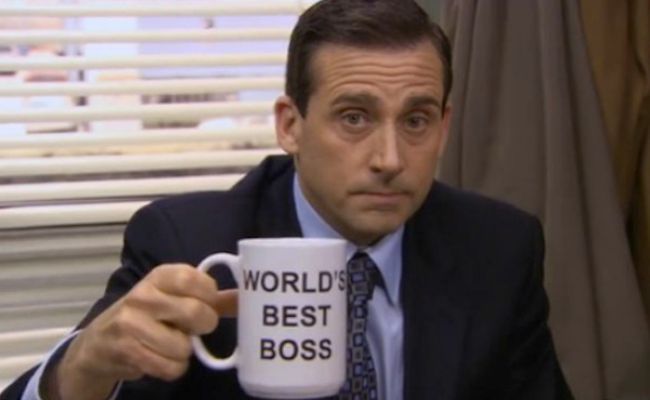
Bad Managers
Read moreLeading a company of any size is a challenge, and even more so if a CEO can’t count on his or her managers. In this edition of the Tough Things First podcast, Ray Zinn addresses the key warning signs of a poor or inadequate manager.
Rob Artigo: Hi, I’m Rob Artigo, entrepreneur and screenwriter, happy to be back for another Tough Things First podcast. Hi Ray.
Ray Zinn: Hello Rob. Welcome back.
Rob Artigo: Appreciate it. The most successful entrepreneurs learn to recognize both positive and negative trends, and that includes the behavior at work of our employees and managers. So let’s focus on managers. What are some of the indicators or warning signs of a poor or inadequate manager?
Ray Zinn: Well the first thing I really notice is that they don’t respond very quickly. In other words, you send a request in for them to handle some particular assignment, and they’re slow to respond. That’s one of the quickest ways I can tell if a manager has some issues. That means they’re not responsive.
Rob Artigo: Well on that subject real quick, I think of sometimes where I expect someone to at least let me know they’re working on it, and they don’t respond and say “I’ve got the message.” Simply saying that they’ve got the message tends to help me know that they’re engaged, right?
Ray Zinn: Exactly. So when I was flying, when I would want to contact the tower or air traffic control, they would be waiting for me to respond back. In other words, they would send a request out saying “Turn right heading 370” or something like that, and then they would expect me to respond back “Okay, I’m level at 3,000, turning right heading three,” whatever. So it’s just courteous and it also shows that your responsive when you do say “Got the message, and I’m on it.” That shows a consideration and a dedication to your task.
Rob Artigo: What’s the next thing?
Ray Zinn: The next thing I can think of is, if they don’t have the answers on the tip of their tongue, in other words, if they have to search or they just hem-haw around, that’s another example that they’re not on top of their game, and that they’re having to think through what it is they’re doing, and that tells me they’re not paying attention.
Rob Artigo: Can you tell when somebody is … I don’t want to use the nasty word for it, but when somebody’s not giving you the honest scoop about the situation, they’re sort of … Like you said, if they don’t have the answer on the tip of their tongue, that’s one thing. But then to play it off as if you do, but you’re not giving the answer, you know what I’m saying?
Ray Zinn: Sure. That’s the same thing. If they just fire off something and then I later find out that the information was wrong, that just tells me they’re being flippant, or they’re just trying to act like they know what they’re doing, but they really don’t.
Rob Artigo: Okay. Another one for you is really company policies and procedures, if they’re complaining about it.
Ray Zinn: I know. Isn’t that … So, what I’ve found is that employees that are having difficulty integrating, or managers that are having difficulty integrating, is they complain about the policies and procedures. And the reason for that is that they’re used to doing it maybe the way they did at their old company, and they just can’t adapt. And so, they say you can’t teach an old dog new tricks, and so the manager who can’t adapt well indicates to me that they’re not very flexible. And as the saying goes “Blessed are the flexible, for they shall not get bent out of shape.” And so if you’re not flexible, you’re going to constantly be complaining or get bent out of shape.
Rob Artigo: And it seems to me they’re deflecting, too, and I think this goes to your next one. And that is, essentially blames others. So complaining about policies, procedures, or complaining in general, or simply saying “It was somebody else’s fault.”
Ray Zinn: I call them whiners, you know. They “Oh, you know, so and so didn’t do their part, or they didn’t finish their assignment.” And they’re constantly blaming someone else for the shortcomings that they’re having. That’s another example I’ve found of people who are … Who just don’t have their act together.
Rob Artigo: How much rope do you give them, to test their limits as they go along? I mean, if they’re doing that to a certain extent that’s one thing, and I think everybody has to depending on what the circumstances is on their desk. You know, what they have on the table that they need to get done. But how do you know?
Ray Zinn: Well, you know they say, you give them enough rope to hang themselves. So you give them enough opportunities to demonstrate that they’re on board, that they’re a team player. And if it looks like they’re not, you either reassign them, or invite them to find another place to work. And so you know you need to be open and transparent with them regarding their performance, but if they’re not willing to toe the … or pull their weight, then that’s a sign that they need to go.
Rob Artigo: And you suggest that accepting responsibility is a way to counter that, right?
Ray Zinn: Absolutely. So if … When you accept responsibility, you get the job done on time. You don’t hesitate. Even if the task is difficult to do or has some pitfalls with it, as long as you put forth your best effort and do whatever it takes to get that job done on time, I’ll be happy with their performance.
Rob Artigo: Do they come into your office, or call you or email you and tell you directly, and expect that even if it’s a big thing that they seem to have messed up, that they can count on you to listen to the circumstances and sort of see things their way when they say “Hey, look, I did this, and I was … I misunderstood something and I went forward and did it, and I messed up. And this is … The result was not good.” Maybe it was a financial problem for the company. I mean, it could be really big things sometimes, and it’s hard to accept responsibility the bigger the dilemma is.
Ray Zinn: As I have said in the past, accepting responsibility is making amends, in other words fixing the problem, not making it a problem for the company. Make it transparent to the company. No harm, no foul, as they say. So again, the purpose of taking responsibility is to make something of it. In other words, resolve the issue and make it not a problem for the company.
Rob Artigo: And of course, Ray, what we’re talking about here on this edition of Tough Things First, is how to recognize the warning signs of a poor or inadequate manager, and you said doesn’t respond quickly to requests, doesn’t have the answers on the tip of their tongue, complains about company policies and procedures, complains and blames others and doesn’t accept responsibility. And also, which goes along with this, and lastly on your list is regularly misses due dates.
Ray Zinn: That’s the challenge. We all expect everybody to pull their weight, in other words do their fair share, and when a due date is not met, that puts a hardship on the company or the department.
I was talking with a friend of mine, actually just couple days ago, and they’re building or remodeling the kitchen. And the original forecast was two and a half months to remodel the kitchen. Now these people decided to live in their house while the remodeling was done, which is a real hardship in of itself.
Then when the project got started, they said “Oh, well the city is late in getting us the permits, and so we can’t cover up this wiring or this plumbing until they do the inspection.” And that delayed it. And they had a vacation coming, you know the kids were all out of school and they wanted to take some time off and then that delayed it. And here it is, five and a half months later and they still don’t have the kitchen done.
This is an example of not meeting your commitments, and having all kinds of reasons for not finishing on time. So the unfortunate thing is, whenever there is a remodeling to be done, you have to double or triple what they tell you, because they just are not very good about meeting their commit dates.
So don’t be that way in your company. Meet your commitments. That’s so important, to meet your commitments, and make those promises means something.
Rob Artigo: Yeah, the word I always think of, as a guy who spent 20 years in journalism, was the word deadline. And if somebody gives you a deadline, if it’s approaching and you know you’re not going to meet it, maybe you need help, and maybe you need resources, or maybe you just need a little more time. but the important thing is to address it beforehand. Don’t have your boss or the CEO of the company have to call you and say “Hey, we had this important deadline and you didn’t meet it. What’s the deal?” And then you’re explaining “Well, tomorrow.” Or “It will be Thursday.” Or “Monday at the latest. I know that I can get this done by then.”
It seems to me before … You have an expectation that you are going to meet that deadline. And if you don’t meet that deadline, and you haven’t addressed it beforehand, then I think that’s an extra hit on you. I mean, you’ve got to be able to say “Look, I know what I can get done.” And I used to do this in journalism, is they would hand me the story. And they would say “Here’s the assignment. Go get this, and get it done by this particular time.”
And I knew from the assignment and where I needed to go, because I had enough experience where I would think in my mind, and I’d be able to back time. From that point, when do I need to do certain things to get it done at that time. If the deadline was unrealistic, I would tell them. Because they could say “Well look, we don’t need this part of the story, or just do the best you can, but get it to us at this time.”
Then that was different than saying “We need all these things, A, B, C, D and E, and you have to have it done at that time.” And then I just go, I don’t say anything, I go out and work on it, and then call them up at that time and go “Well, I just didn’t get it done, because it was too much.” You know, I could have been passive-aggressive and just not done it on time, and blamed them.
But at the same time, I think you’ve got to say something beforehand, because there may be something they can do. Give you some more resources or help you out, or make a call for you that might speed things up.
Ray Zinn: Well a deadline is exactly as it says, it’s a due date that can’t be missed. In other words, it’s a line that if you don’t meet it, you’re dead. And that’s why they call it a deadline. So, anyway.
Well this has been a good conversation, Rob, and hopefully our listeners, if they have some questions or other ideas or concerns, that they will email us or call us or let us know, and we’ll be happy to answer them on the air.
Rob Artigo: Right. ToughThingsFirst.com is a great place to start. You can link up with Ray Zinn’s Facebook page, email information, and also of course subscribe to the podcast. Thanks again, Ray.
Ray Zinn: Thank you, Rob. This has been a great session.
- Aug022017

When Customers Leave
Read moreThere seem to be two different types of customer defection problems. Big, sudden, critical client losses and slow trickles. Ray Zinn, the longest serving CEO in Silicon Valley, talks about how to handle each type, and what causes these defections.
Guy Smith: Hello everybody and welcome once again to the Tough Things First podcast. I’m you’re guest host Guy Smith and of course the star attraction as always, Silicon Valley’s longest serving CEO, Mr. Ray Zinn. Howdy Ray.
Ray Zinn: Howdy to you there Guy.
Guy Smith: I feel we should say howdy ’cause we both grew up on cattle ranches. I’ve recently saw a picture of you taken just last week mounted on your horse up in Montana. It looks like you have not given up your cowboy ways.
Ray Zinn: Not a chance.
Guy Smith: I’ve got my Justin boots on right now so I think so I think we’re both holding onto that.
Ray Zinn: Are they goat ropers or what?
Guy Smith: No just riding boots. I want to talk about customers leaving. One of the worst things you can have happen when you have a company of any size but especially for startups is when customers suddenly start to vanish. Occasionally you have big, sudden, mass defections of customers, occasionally it’s a slow trickle. Losing customers is always a big warning sign. Let’s talk about those two different things. The slow trickle of losing customers and some big sudden changes. What causes these kind of things and what should a CEO especially of a startup be looking in terms of when customers leave and why they leave?
Ray Zinn: I’ve always held that you don’t want to have any one customer greater than 20% of your total revenue. That’s about as much as you can handle if they leave. If you organize your organization such that you can cut back 10% or 15% without too much pain, then you can tolerate a customer in sub 20% if they leave you can handle that. That’s the first gauge that I use is that no one customer should exceed 20% of my revenue. If you’re a brand new startup, then one or two customers is all you have then they’re going to represent 50% to 100% of your business. If they leave that’s going to be a big problem. Obviously try to diversify as quick as you can your customer base because you are going to lose customers.
On average most companies lose 10% to 15% of their customers, revenue wise, a year. Either through obsolesce or competitors coming in or a number of reasons, company went out of business, whatever. You can lose 10% to 15% of your customers a year. You have to have the ability to pick those up somehow.
Guy Smith: That’s a good lesson for people who are trying to launch their companies in Silicon Valley is that you’re going to start losing customers from day one and fold that into your economic forecast. As I recall when you had Mike Krell, you lost one really big fish. I think you had Xerox and they made up a healthy portion of your revenues. Then they decided that they were going to go get out of the particular market that you were helping them serve and that caused a hit. Tell us that story in brief and how that helped you form your 20% philosophy?
Ray Zinn: At the time they were building a color printer and this is back in the mid eighties, late eighties I guess. It was a new market for them. They were known for their black and white but this color thing was just getting underway. We developed this product for them that is a custom product actually for this new color printer called Sunray. Everything was going along fine, we made a big investment, hired a lot of good people to work and develop this product. Put a lot of energy and effort into it. Sales wise it represented about 25% of our business, 1/4 of total company sales. It was in September and I remember getting a phone call from my contact at Xerox. He said that, “The CEOs had to pull the plug on the program.” He was real apologetic and felt really bad.
I sunk down in my chair, he could have knocked me over with a feather. It was a horrible experience because then I had to go tell my people, that we just lost a big customer. It wasn’t over time it was just instantaneous, meaning that their CEO is going to announce and a press release was going to announce it the following day, that Xerox is pulling out of the color printing business. As a consequence we had to do a significant layoff to cut back to be able to still run profitably. It was a painful time for me. I vowed at that point that I was never going to have a customer over 20%.
Guy Smith: It’s probably good advice. I’ve known a lot of people who had small businesses that relied on one or two major customers. I’ve got a relative in the answering service business who a good 40% of his revenue came off of one customer. When that customer left it caused a lot of consequences.
Ray Zinn: I’ve seen this over and over. This is not the first time I’ve seen this happen. I know customers right out there [inaudible 00:06:07] companies that have 30% or 40% of their revenue comes from one customer. In fact I have one friend that runs a company that 80% of his revenue comes from Apple. To me that’s just too risky.
Guy Smith: Yeah. I’ve known a couple of small semiconductor companies who were in the military aeronautics field. When the air force is your only customer and they suddenly obsolete an entire aircraft line or something like that, you’re entire company can be wiped out in the process. You now have technically zero customers. Let’s talk about the other side. Let’s talk about the slow trickle. This is the one that almost scares me more because how do you detect when you have more customers leaving than are coming in. What is the cause of that churn and what is the most typical cause that CEOs miss, that the churn is now getting out of control?
Ray Zinn: It’s called a leaky bucket phenomena. When you start seeing your revenue drop across the board, not just with one customer but with all of them, that’s a sure sign that either your pricing is … unsatisfactory to them. Your product has become obsolete so you’ve lost a fair number of seats on that particular product or idea. It could be that your competitors have come in and have carved out a piece of the business. Until they’re qualified, you get some business and it looks like you still got the customer until all of a sudden you get a phone call saying that competitor XYZ, has taken the business. It’s called the leaky bucket effect and that’s something you have to be aware. You can watch that. That’s something that if you look at a product line and then all the customers seem to be trickling off, that’s a sure sign that you have a product problem or a pricing or a competitor issue.
Guy Smith: Okay that certainly makes a lot of sense. The tech industry. You and I have spent pretty much our entire careers in the tech industry. Is this phenomena more amplified in high tech?
Ray Zinn: Because of rapid pace I would say so. The rapid pace of our industry just precipitate that issue. You can as they say, slowly go out of business when that happens. It’s like dying of cancer versus dying in an automobile accident. Both of them are bad because you’re going to be dead. In one case you just bleed to death and the other is you die slowly because of the cancer. Yes it is a phenomena of our industry that it grows fast but it also dies fast.
Guy Smith: I almost have a feeling that the sudden death syndrome is more acute in high tech because anyone who comes up with a disruptive new technology can completely vaporize an entire industry.
Ray Zinn: We all try and come up with a disruptive technology just to preserve our brand. Certainly the nature of our industry, if you’re not on the leading edge you’re going to be on the dying edge. You got to keep your brand fresh and keep your customers in your pocket.
Guy Smith: That leads to what I think is the second best management book after Tough Things First. One with the wonderful title Only the Paranoid Survive. Is that true? Do entrepreneurs especially in the tech industry need to be functional paranoid?
Ray Zinn: I threatened by Andy Grove and Andy personality wise was a paranoid. He ran Intel as a paranoid. That can breed stagnation. In other words if you are so paranoid, that you are afraid to go right or left, it’s like the deer in the headlights. You’re going to lose. I think Andy’s bottom line believe in that is that you got to be looking around all the corners. There’s got to be some skeletons hiding out there somewhere that a dog’s going to come up and bit you. That’s what he meant by that.
If you’re always afraid of your shadow, if you’re looking at every boogeymen man out there, then you’re not making the wrong decision. Make sure that if you are paranoid that you’re not paranoid of everything, you’re just already know where to look and not just react as you would.
Guy Smith: There’s value in functional paranoia but if you become scared of everything you’re going to eventually devolve into a state of immobility.
Ray Zinn: That’s paranoia isn’t it? You think everybody’s after you and you think you’re about to be taken over or die. That’s not an optimist, an optimist is not a paranoid.
Guy Smith: Yeah optimism tends to work better than paranoia or at least it has in my life. That’s probably the lesson for the entrepreneurs today is that you do have to watchful but you also have to be optimistic. More optimism than paranoia gives you pull and lift instead of drag. Thank you once again Ray. It was informative as always and for all your listeners out there, by all means two things. Drop by the Tough Things First website. You’re going to find all of Ray’s social media contact points there and you can hook up with him directly on Twitter and Facebook and LinkedIn. Of course if you haven’t already you have to read Tough Things First. It is arguably one of the best management books come down the pike in possibly in forever. It teaches you not only about leadership and management, it teaches you some real basic life skills and how all of these work together.
Ray Zinn: Some of the tidbits that we put on their twice a day, might be of help to a lot of our listeners. We post two thoughts of the day, two ideas and something for them to ponder. I’d recommend they go in and look at those tidbits and see if they’re of help to them.
Guy Smith: Excellent advice. Tune into Twitter and get those in real time and we will see you next week for another edition of the Tough Things First podcast.
- Jul262017

CIO … Optional
Read moreIs a Chief Information Officer necessary? Ray Zinn discusses what a CIO does, and why your company may not need a CIO.
Rob Artigo: Thank you for listening to Tough Things First. I’m Rob Artigo. I’m a writer and business owner in California. Hello, Mr. Zinn. Ready for another topic?
Ray Zinn: We are ready. So good to be with you today, Rob.
Rob Artigo: Thanks, Ray. Let’s talk about the role of the CIO. Let’s start simple. What’s the role of the CIO, or the chief information officer? What is it that the CIO should be doing at your company?
Ray Zinn: Based upon the nature of your business, if as a CEO or the leader, and you have a good ability to communicate, or a good communicator as you would, you don’t need a CIO. A CIO is generally, there for business leaders that don’t have that ability to communicate. The story is told of Moses, when God said, “I want you to lead the children of Israel out of Egypt,” Moses said, “Well, I’m not good at speech. I’m not a good communicator.” He said, “Okay, I’m gonna give you a CFO,” and He gave him Aaron.
So, Aaron’s gonna be your CIO. Because, you’ll tell Aaron what you want to be conveyed and then Aaron will go out and do that. And that’s the way it was in leading the children of Israel out of Egypt, was that Moses was the CEO and Aaron was the CIO. So, if you’re good at communicating, and this is a skill that has to be developed, you really don’t need a CIO.
Rob Artigo: There is the other side of that, though. There is the CIO who has a technical obligation with the company. For example, information security.
Ray Zinn: You mean, as a function?
Rob Artigo: As a function, yeah. A function of their job, right?
Ray Zinn: Yeah, it depends again, the kind of company you run. I’m speaking globally, now.
Rob Artigo: Sure.
Ray Zinn: So, I’m not making it so company-specific that saying okay, they’re responsible for the security, things that, protecting the information of the company. Yes, that’s true they do have that. But, that’s specific to those organizations that have that sort of, need for maintaining security on their information.
Rob Artigo: I was reading about this writer was, I think it was Wall Street Journal or Forbes, one of the two, but they were talking about the role of the CIO and that a lot of companies that are startups, when they get large enough and they think they’re gonna go ahead and IPO, that, that’s when they hire a CIO to come in. And when I first read CIO, I always think chief investment officer, but having to re-scramble my brains and figure out, oh, they meant chief information officer. But, his argument was that you needed one and that you should bring this person in early on in the process, not right before you IPO, because then it takes them a lot to get up to speed. Is there a time when you feel a CIO is going to be appropriate for your organization?
Ray Zinn: If you’re a very publicly traded company, and there is a lot of calls that come through, just random calls, and it’s going to suck up your day so that you can’t get anything else done, sure. I mean, if you have somebody who can take those phone calls and take that off your plate, then certainly, that person can perform that function. But, I never liked to talk to a CIO. I want to talk to the CEO. So, whenever you’re stuck with the CIO, you know you’re just gonna get the standard pat answer, whatever is in his purview, he reads from the standard verbiage that he’s allowed to tell you. You’re not gonna learn a lot. I mean, I very seldom learn much from a CIO because they’re just giving you what they’re told to say.
Rob Artigo: Right, the pat answer, whatever the, and some people would call it spin, or the soundbite that they want to get out there, the messaging. You’ve probably seen this. I’ll put my reporter hat on, too, is if you’re watching a news program, and so, you watch a live press conference and you see an information officer for somebody, and they’re asked a question, they might dance around in the first few words, but they’ll bring it back to the messaging of the subject they want to talk about.
So, instead of answering the question from the reporter, they change it up and start speaking about the thing that they want to message. And then, they’re asked a follow-up question by somebody else, and they’ll do the same sort of, square dance with them in the first few words, and then go back to saying that line again that they want to get out there, so that they’re always saying the same thing over and over again.
Ray Zinn: Well, you may know, at press conferences with the President, he has his press secretary go out and communicate to the news media, because the news media is going to dig, dig, dig, dig, dig. And so, he’s got to be very fast on his feet and have the ability to really communicate with the press corps without being offensive. And he has to dance around a lot, as we’ve seen recently, because the questions are very negative and very pointed. And so, he has to almost practice answering negative questions. So, if I’m investigating your company or, as a potential investor, I want to talk to the CEO, not the CIO. But, the CEO tends to hide behind the CIO, so that he doesn’t have to have those difficult questions to answer.
Rob Artigo: Along those lines, let’s say that you’re the business owner and you’ve decided that, I can handle the information. I want some screening. You have several layers of people that something has to go through to get to you so you’re not bothered by calls all day long, but you will take the important ones, and you will address things that are gonna be publicly printed or recorded or whatnot. You leave the CIO out of it, but how do you make sure that you are sticking within the framework of what’s responsible for your company when dealing with public speaking? When you have so many things going on, it’s kind of easy to get distracted and you might get tripped up?
Ray Zinn: Well, I mean, that goes to how good of a communicator you are as a CEO. At Micrel, I ran for 37 years, we never had a CIO. So, if it was just a random investor question, I’d let my CFO answer it, or take the call. So, my CFO, effectively, was like a CIO even though he didn’t function. But, any of the tough questions, the CFO would say, “Well, let me see if I can get Ray on the phone and we can talk about that.” So, he would then pass it over to me. So, we never dodged an investor, but if we could answer it without having to get me involved, then my CFO would take care of it. So, in 37 years, I never had an official CIO.
Rob Artigo: And that would be exactly the opposite of what this writer was saying. He was saying, you’ve got to have a CIO and you’ve got to have the CIO early on in the process, like, one of your first hires. So, your argument is that it all depends on whether or not you or the people you already have working with you can fill that role, as to whether or not you’ll need it.
Because, I’ve seen some people out there who are, unfortunately, just because they haven’t been around a long time and they don’t have media savvy, perhaps, they are let’s say the tech world, I’m gonna go to the cliché side of the tech world, it was a garage startup, 22-year-old CEO, and awkward, let’s say it’s a person who is just somebody who is really proficient and really driven and a fantastic operator of a business, but is just, socially awkward and has a hard time doing anything in the media, that person right there might go, “I need to have somebody who can be maybe, the voice and face of the company.”
Ray Zinn: My feeling is, is that, when a company has a CIO, and this is my feelings, this is my views, this is not necessarily held by you or some of the others, but my view is, if you have to have a CIO, that tells me that number one, you must not be a very good communicator. Number two, is that you’re afraid to address the questions. You’re not very transparent. So, the more you turn it over to an information officer, the more likely you are of being viewed as being nontransparent.
Rob Artigo: And you did the disclosure there, at the beginning. This is just your opinion, and it’s obviously, gonna apply to every company out there with that going on. But, you, as an entrepreneur, as an investor, as a man in the industry out there engaged in business daily, it’s natural for you to have that thought come into your mind when you meet somebody who’s spending the money to have a CIO early on in a smaller company. Logical questions, though. They’re logical questions. You always have to explore little bit more to find out if it’s truly the case. But, that’s a real reaction that you can have, and that’s something that people should think about.
Ray Zinn: Well, my company, Micrel, was known for its transparency. And I never dodged an investor. I was at all the investor conferences. I had no problem taking the calls, these random calls. I actually, liked interfacing with the public regarding the company, because we were transparent. We didn’t have anything to hide. And it was an easy job for me. Maybe they didn’t get the answer they wanted, but they got the answer that I felt they should have. So, I like to be able to communicate, because I’m the one that’s running the company.
Rob Artigo: And, as a reporter, when I’m out there covering, when I was a reporter, when I was out there covering stories or calling organizations, when I dealt with Google, Facebook, and major companies, Tesla, and I remember one of the most available people was from Tesla, Elon Musk. Whenever they were doing something, they had Elon talking. They didn’t, that’s not necessarily the case with a lot of organizations.
And I think you can tell the difference in the way the media cover something, when they’re hearing from the principal, and that’s what we would call it in the business. So, the principal person would be, it’s not the spokesman for Senator Dianne Feinstein, it’s time Senator Dianne Feinstein. Or, it’s not the spokesman for the President, it’s the President who’s doing the talking. You’re liable to take more credibility from that person’s comments and words, and give more short shrift to when it’s somebody’s spokesman.
Ray Zinn: Well, jumping back to this political environment, I would rather, as an individual, I would rather hear 10 minutes from the President of the United States than a half an hour or an hour from his press secretary. So that’s my view. I mean, I know I’m getting hosed when I listen to the press secretary. But, if I hear it from the President, and maybe he spends only five or 10 minutes, I’d rather have that, than a half an hour or an hour with the press secretary.
Rob Artigo: Well, that’s one of the reasons why this is such a wealth of information. Your Tough Things First podcasts are enlightening in so many ways. And obviously, “Tough Things First”, the book, which you can get out there at Amazon and other major retailers, is a great source of information, because you’re doing the talking. And you’re not mincing the words. And because they’re getting the straight dope from you, the reader or listener knows they’re not getting hosed. And that’s one of the reasons why I like doing the podcasts with you, and quizzing you on all kinds of subjects, because getting the straight information is very helpful.
Ray Zinn: Well, thank you. I think that hopefully, our audience is feeling the same way. I’ve had a lot more experience than even our current President has, maybe not in running the country, but in running a company. I’ve done it a lot longer than the current President. So, experience has helped me, and that’s why I’m sharing this information at my sunset years of my life, is that I think that my experience helps in communicating some of these important issues.
Rob Artigo: Thank you again, Ray. I appreciate you being back.
Ray Zinn: Well, thank you, Rob. Appreciate having you.
- Jul192017
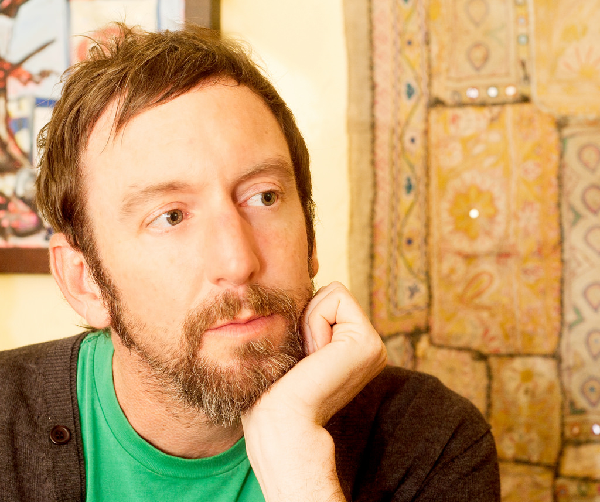
Good Listeners
Read moreGreat entrepreneurs are good listeners, while some entrepreneurs just think they are good listeners. In this Tough Things First podcast, Ray Zinn discusses the components of good listening and explores the advantages of putting your mouth in neutral.
Rob Artigo: Welcome back to another Tough Things First. I’m Rob Artigo, writer and business owner in northern California. Thanks for having me back, Ray.
Ray Zinn: Hey, it’s good to be with you again, Rob.
Rob Artigo: Ray, I recently read an opinion piece where the writer made the case that most successful entrepreneurs have one major trait in common. I think you could actually go through the vast list of great entrepreneurs and look at them and say, “They have a lot of different things in common,” but this writer thinks there’s one particular trait in common that most successful entrepreneurs have. It’s being a good listener. They use a quote from Richard Branson who wrote this apparently in a famous LinkedIn post. If this sounds familiar to some people, it’s because apparently it’d been widely circulated.
He says, “Nobody learned anything by hearing themselves talk, or speak,” and he goes on to say, “The ability to lock in and listen is a skill that has served me well in life,” says Branson, “Although, it seems to be a dying art, I believe that listening is one of the most important skills for any teacher, parent, leader, entrepreneur, or just about anyone who has a pulse.” Branson, as we know, is one of the world’s great entrepreneurs and most widely understood or listened to guy on the subject being a businessman. Most people, Ray, who have worked with you and know you well, know that you’re up there on the list of good listeners. Let’s talk a little bit about that. Have you ever met anyone who sells themselves as … Or him or herself as a good listener, but won’t stay silent long enough to hear what somebody has to say?
Ray Zinn: Yeah, absolutely. I mean, as Judge Judy says, “You got two ears and one mouth for a reason. Use them proportionately.”
Rob Artigo: Right.
Ray Zinn: You can’t listen while you’re talking and some people just love to hear themselves talk. If you’re talking, you absolutely cannot listen. I break it down into two components of listening. One, is called a willing listener and the other component’s called, willing to listen. Willing listener is someone like a doctor who shows empathy and sympathy toward his patient and listens without talking, he just listens to the patient talk about their issues. That’s being a willing listener. Most entrepreneurs, or most good leaders, are willing listeners. Willing to listen is like a student. If you’re willing to learn, then you should be willing to listen. That’s what is referred to as a willing listener. It has to start … I mean, willing to listen.
That has to start there, so you have to first of all be a good student. Good students have a willingness to listen. Then if you have that ability to want to learn and understand, then you ultimately will become a willing listener. I know that sounds like double talk, but it’s really not because there are two different phases. In one case, you’re showing interest because you’re trying to accept and understand that idea or their concerns. The other is that you’re studying, you’re pondering, you’re wanting to hear the information and that’s willing to listen. We need to kind of put our mouth in neutral and get both those ears functioning properly so that we do honestly spend more time listening than we do talking.
Rob Artigo: I was recently at a promotion ceremony for a military officer, friend of mine, and he was promoted from Lieutenant colonel to colonel. That’s the military speak, that’s the bird, and it’s the bird that goes right before the star, so before … His next promotion, if he were to ever get it, would be a general. It’s a big step in the military. I went to lunch after the promotion ceremony with the guy who got promoted and another colonel in the Army, and I remember this very specifically, the colonel … I’ve known both of them a very long time and both guys have been in the military for 30 years. They’ve been around a long time and I guess being in for a long time is one of the things that lends itself to promotion, so that’s good news on their part.
The colonel that had been promoted some year or two before the other colonel said to him, he goes, “The one piece of advice I would give you is this. Say a lot less at meetings. Just say less. Speak less and speak at the end, mostly.” What he was advising him was essentially that, listen, be a good listener. You’re talking about a guy who could … If you’re a colonel, everybody’s going to shut up when you start talking. If you’re in charge of a meeting and all you do is talk, you’re never going to get the information from the people around you. We, in the business sector, we have situations like that. We’re in a meeting, people respect your position of authority, say if you’re CEO, as you were at Micrel, you can be in a meeting with all your section heads and the important people who run operations in various branches, but then if you sat there and talked the whole time, you wouldn’t get anything from them.
Ray Zinn: I agree. The key here is … At Micrel, for example, I used to ask people, “What can I do to help you, or how can I help?” That now then turns the time over to them to say, “Here’s what I need,” and I’m listening then. If I say, “What can I do to help,” and then all of sudden I’m telling them what to do without listening, then maybe you’re giving the wrong instructions or I’m not showing my willingness to help them. If you say, “How can I help, or what can I do to help you?” Then shut up and listen. If you’re a salesperson and you’re going in and presenting your product to a customer, introduce yourself and shut up. Let the procurement officer or the procurement person tell you what they need or let them speak. You listen. They’re going to appreciate that more than if you’re sitting there just giving them a sale’s pitch. I mean, we kind of laugh at what we call the used car salesman, because we know we’re getting gypped.
We know that they’re out there just selling us a bill of goods, a piece of junk, that isn’t worth half the price that they’re charging for it and so we hate the used car salesman pitch because all they do is talk, talk, talk, talk, because they don’t want you to ask any questions. If you’re a good salesperson, you want that … You have a good product, you want that procurement person to ask you questions. Be a listener. Listen to what their requirements and needs are. If you’re a manager, then when you visit with your people, listen to them. Don’t just start talking, “Oh hey, what a wonderful organization. Oh, you guys are doing a great job.” Praising is fine, but shut up and listen and see what they have to say, because you’ll learn now what you need to do to improve your operation. Again, as Judge Judy says, “You have two ears and one mouth for a reason. Use them proportionally.”
Rob Artigo: Now, I had to … In that course of that conversation, that very same conversation, we happened to bring up the fact that, well they’ve worked with politicians before, say the governor of California, for example. I’ve worked with, as a reporter, been in rooms with governors and other major politicians, senators, and presidents, and that sort of thing. One thing I’ve noticed often times is that people will be called to an event and these guys, these military officers said basically the same thing. In the course of the conversation centered on this, which was, you get dressed up, you’re going to go to an important meeting.
Say the governor’s there and you’re going to sit down with the governor and you’re going to be able to say … Say you’re a police chief, for example, and you’re sitting down in front of the governor and you say … You want to be able to say, “These are the things that our city deals with and these are the funding issues that we have and some things that you perhaps can do to help as a governor.” If the governor comes in and sits down and just says, “You guys are … We love you guys here at state government and you guys are awesome, we love you. Come over and take a picture with us,” and then everybody gets together and gets a picture, and then he leaves. He doesn’t actually listen to anything that’s going on. Don’t you also run into a problem, not just a nonproductive meeting, but you leave the people in the room with the impression that you wasted their time.
Ray Zinn: Yeah, absolutely, because again, we’re there to learn and being a person willing to listen is the key to being a good student. If all you want to do is tell them, they’re only going to remember about 10% of what you said anyway, so there’s no need of going on, and on, and on, because they’re going to turn you off anyway after a minute or so of listening to you. Keep your dialog short. Keep it to the point. Use soundbites. Soundbites are something that stick with us. If you’re going to say something, say it in very short soundbites.
Rob Artigo: Probably helps to do it when you’ve listened completely through to their thoughts as well and perhaps incorporated a little bit of what they said and talk it back to them.
Ray Zinn: Yeah. You might repeat back what they said, so it sounds like you were listening. That’s another good key is to good listening is to repeat back what the person saying, “Oh, so what you’re telling me is this,” and then you go on and say what it is you thought he said, or she said, and then they’ll respond back, “Yes, that’s exactly right.” They now know you’re listening and you understood what they were saying.
Rob Artigo: Great, Ray. Appreciate it.
Ray Zinn: You’re welcome.
- Jul122017
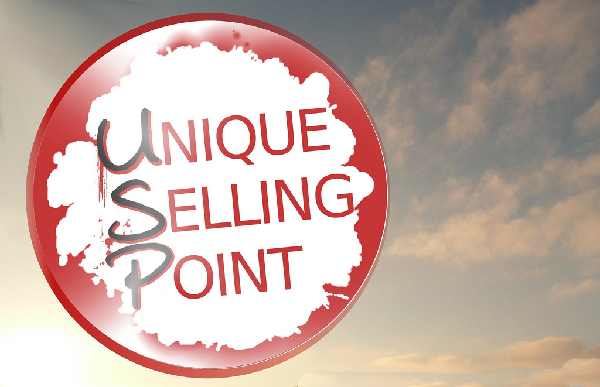
Selling
Read moreSelling a new product in a crowded field. In this addition of Tough Things First, Ray Zinn gives advice about how to crack the toughest nut in business; getting in the door when your product is great, but you’re new to the market place. Ray considers the question from the seller and buyer points of view.
Rob Artigo: I’m Rob Artigo, guest host for this edition of Tough Things First. I’m a screenwriter and I’m an entrepreneur in California. Happy to be back again, Ray.
Ray Zinn: Well, thanks Rob. It’s so good to be with you this day also.
Rob Artigo: Sure. Consider a business where the product is great. We’ll set that aside. The product is a good product, but the field that the product is being introduced into is crowded. Often times the sale’s pitch can be met with, “I already have a guy who does that,” or, “I already have somebody who provides those machines and I have a relationship with that person.” Help us understand some strategies and I know that you’ve had experience doing this in the sale’s world, is having to go into a market where you’re presenting a product to somebody who already has that product being provided to them, but your product is different, sure. Your product may even be better, but you’ve got a situation where you have to get yourself in the door and convince somebody to try something new. How can we do that in the business world?
Ray Zinn: Well, that’s a challenge because this is not something new, this is not something that’s happened in the last few years. People, again, resist change. When you go to your customer, he’s going to resist change. He’s not going to want to try something new because there’s risk involved in anything new. What you have to do when you go in and visit with him, is not to say, “Hey, I got this new thing.” What you want to do is go in and say, “Here’s how I can save you money. Here’s how I can reduce the cost of your operation.” Don’t try to go in and say, “Hey, I got this new thing. It’s revolutionary.” That’s going to turn them off. The best way is to say, “Hey, I can cut your cost by 20%, or 15, or 30, or whatever,” because it’s got to be something north of 15 or he won’t even look at it. You say, “Okay. Here’s how I’m going to reduce your cost, or here’s how I’m going to get you … Improve your use of time.” It’s got to be significant, well north of 15% either in cost savings, or time savings, or something like that. That’s the way you really open the door.
Rob Artigo: I think of the movie quote, “Show me the money.” Often times, that’s what will cap someone’s attention. As a screenwriter, when I’m out pitching a screenplay or introducing a screenplay to somebody, often times the most interesting thing to them is if they hear in the pitch the very brief, say, two, three sentences of what the story’s about, do they see money coming at them? Do they see money? Do they see finances? What you’re saying is, “Show me the money. When you walk in there, a penny saved is a penny earned.” You’re saying, “Hey look, I can present to you a 15% increase in your revenue from this.”
Ray Zinn: Or a reduction in cost.
Rob Artigo: Yeah, reduction in cost.
Ray Zinn: Somewhere that he’s got to see the value in the proposition. Avoid saying, “Hey, I got the best this and that,” or, “I got the newest, and the latest, and the greatest.” That’s not going to entice them to listen. What you want to tell them is, “This is going to save you a ton of money,” or, “This is going to improve your revenue, or improve your efficiency, or your effectiveness,” and just really keep it sharp and crisp. Do soundbites. Today we’re not interested in long pitches. We like short crisp pitches.
Rob Artigo: What about walking in there and saying … Let’s say you go overboard a little bit, and you’re over zealous, and you decide that you’re going to say, “Hey look, everybody else is charging $100 for this thing.” I’m going to go in there and I’m going to say, “I’m going to charge,” because I want to get in the door of this big client, “I’m going to charge him 50.” Then, do you think as the buyer you’re going to go, “Uh-oh, there’s got to be something wrong with this?”
Ray Zinn: It could. I mean, you don’t get something for nothing, so everything has a penalty to pay. I remember getting this Whiz-Bang software package that was supposed to help reduce costs once it was implemented, but the cost of the implementation was really high. What I learned was, is that it took a lot longer and a lot more time and effort than actually the savings was worth. For everything that we implement is a cost, so you’ve got to make sure that the implementation is straightforward and achievable in a reasonable period of time, at a reasonable cost, because it’ll eat up the cost savings just in trying to implement the change.
Rob Artigo: If you’re the buyer, what kind of questions are you going to be asking when somebody walks in? Let’s say they are offering you a promise of a 15% savings on costs, or reduction in work time, and so that turns into real money at the end. What are you asking them to make sure that you are … That they’re providing you what you want?
Ray Zinn: What are the net savings? In other words, there’s a cost associated with putting your system in place, or your idea incorporated into the organization. What does it cost me to implement it, and so what is my net savings going to be once I implement this project?
Rob Artigo: I think of automatically, suddenly I just came to this picture of a solar panel commercial on television. They say, “This is how much it’ll save you from your electric bill.” You go, “Oh, that sounds really great.” Then you find out that really the savings will only kick in after about five years because of the amount of cost that you’re putting in up front. That’s the kind of thing you want to know, is-
Ray Zinn: That’s the exact example of what I’m talking about. They want to make it sound like it’s nothing. I mean, they’ll … “Oh you’re going to save us. You’re just going to get all these savings.” What they don’t tell you is that you’ve got put a new roof on your house, and you’ve got to make some structural changes to beef up the weight of that … Putting the solar panels on. I mean, there are some costs to implementation. I learned that when we changed our driveway from a concrete driveway to a paver that it was not that simple. I mean, they had to tear … Go all the way down a couple of feet and put in a different kind of base system because on a concrete driveway the water just runs off, but in a paver, the water actually goes down through the pavers and so you have to have a way to carry the water off. There was a cost associated with that, that they didn’t tell me about.
Rob Artigo: I call that, mission creep. I had that experience at a major home organization, a big box store, and I went in there and got some help getting an island built for my kitchen. I was doing half the kitchen rebuild one day and hopefully later on down the road I would do the other half. I started with the island, which has a cooktop on it, and has drawers, and storage space, and a nice marble top. What happened was, I got an estimate on how much that would cost and as the time went by, there was like, “Oh yeah, and then you need to get these things that go in here like this and that’s going to cost you a certain amount of money.” “Oh, okay. That’s interesting.” “Then they got to ship it from Florida, so that’s going to cost you another $300.” Then as you go along, you go, “Why didn’t just … This stuff is not a mystery. It should be in the original estimate. You know what I mean? [crosstalk 00:08:39] It’s not something … They didn’t have to invent it. It had to go there in the first place, you just didn’t tell me about it.”
Ray Zinn: I know, they intentionally didn’t want you to know that because that would discourage you, so they’re not going to tell you those hidden costs, as they say. With any implementation, there’s a hidden cost. For example, when we put this new software system in at Micrel the employees were having a difficult time accepting it, because they had to learn something new and that was a challenge for them. Hey, if it ain’t broke, don’t fix it. They just rock along with what they had, and so when we tried to implement it, they were complaining, “This is … Oh, I don’t like the way this interface is, I want … This is taking me away from the way I used to interact with my customers.” They just complain, complain, complain. You got to take that into consideration too, that any time you implement something new there’s going to be some resistance by the employees.
Rob Artigo: Thank you, Ray. Very interesting subject.
Ray Zinn: You’re welcome. Thank you for taking the time with me today, Rob.
- Jul052017

Avoiding Risk
Read moreResisting the temptation to avoid responsibility. In this Tough Things First podcast, Ray Zinn is quizzed about our changing culture. Are we beginning to have an aversion to change and are we too often relying on others, even computer algorithms, to make big decisions for us?
Rob Artigo: I’m Rob Artigo, entrepreneur and screenwriter and happy to be back for another edition of Tough Things First. Hi, Ray.
Ray Zinn: Hello there, Rob.
Rob Artigo: Ray, there’s a new book out there that explores how Americans have transformed from a willingness to move to take risks and adapt to change to kind of this culture out there now that is avoid change. This writer says, “We’re moving residences less, we’re marrying people more like ourselves, and we’re choosing music or our mates based on algorithms that wall us off from anything that might be too new or too different.” Is this a dynamic that you see out there in the world these days?
Ray Zinn: Well, I think he’s taken more of a contrarian view, which is fine because there’s always two sides to every coin. This author is taking a different view of people’s change in their mood and attitude toward change, so I think that’s more of a contrarian than maybe what’s actually happening.
Rob Artigo: You know, we do this in our business lives and our everyday lives, right? We look at things, and sometimes our interpretation of it is a matter of perspective.
Ray Zinn: Exactly, and it seems like the contrarian view tends to entice a lot of people to listen and join in. I think it’s more that, more controversial than true reality, Rob, so I wouldn’t take it at face value. I would look at it more as maybe a contrarian view. We do have the millennials, who are marrying later. I don’t know if they’re marrying people of their own culture, but they are marrying later. They’re living at home longer. They’re looking for more safety, so maybe you would say they’re risk averse. The change is less risk averse, wouldn’t you say?
Rob Artigo: Yeah, sure. What I’ve found is that as I’ve gotten older, I’ve become less risk … Or I’ve been more risk averse, I should say, only that you have more at stake. When you’re younger, that’s when you really should be taking the bigger chances, the bigger leaps, that are easy to recover from if you happen to make a error in judgment or make a decision that doesn’t work out your way. It seems to me that the younger people …
Then, going to what this writer is saying and I think eluding to at least exploring this subject is that maybe because they’re staying at home longer, because they’re making decisions later in life to get married and make other important decisions … I believe you shouldn’t be rash in those things, but at the same time, if they’re waiting a long time and then not taking the appropriate amount of time to decide what to do … You know what I’m saying?
Ray Zinn: Sure.
Rob Artigo: If they’re going to get married later in life, but they still only take three months to make that decision, they’re still making a rash decision.
Ray Zinn: Right.
Rob Artigo: Maybe there is a risk element there that they should be taking in the big things in life or the decisions they make about where to go for work and study and that kind of thing that they’re not really taking.
Ray Zinn: As you pointed out, we … When we become more dependent on the government, that just makes us, and our parents, as you would. We’ll throw in the parents in there also because I heard a comment yesterday by someone that said, “You know, your kids never move out of, out of the home.” In other words, even though they may go to a different apartment or maybe move out of the actual home structure itself, they’re never really off the parents’ payroll. With all the government entitlements now, and the last nine years have really established that pattern of entitlement, the kids are unwilling to take risks because they don’t feel they have to. If you don’t have to take a risk, why? Why do it? I think we’re seeing a little bit of that is why it looks, at least on the surface, it looks like they’re avoiding change.
Rob Artigo: Can we rely on algorithms too much nowadays as well, where we let computers sort of analyze circumstances and recommend changes that perhaps we should do with the consultation of parents or friends and not necessarily rely simply on algorithm?
Ray Zinn: It’s the parental algorithm, as you would. We’re letting our parents tell us what to do, what school to go to, what education to get. We’ve become accustomed to people telling us what to watch, what to listen to. I think that is at the heart of what you’re talking about is it is a parental syndrome. In other words, as we grew up as children, we relied on our parents to tell us what to do and when to do it, and it’s just happening a lot later in life now.
Maybe it happened up until we were 16 or 17 maybe 30 or 40 years ago, but now they’re in their 20s and maybe even their 30s, still having their parents telling them what to do, what to eat, where to go. We’ve just been accustomed to … Even the ubiquitous driving, we don’t drive the car anymore. We just let the car take us from here to there, so it’s going to even foster more of this algorithmic analysis. We want everybody else to tell us what to do because it seems safer.
Rob Artigo: Right. Letting somebody else do the thinking for us. You’re taking the decision making out of it, so it’s like you are also relieving yourself of some blame if something goes wrong.
Ray Zinn: Yeah. You’re not accepting responsibility for your actions because you’ll say, “Well, you know, I was … Here’s what the model … Here, here’s what the conventional wisdom is, and I’m gonna follow that. Therefore, I don’t have to take a risk.” That’s being risk averse.
Rob Artigo: Can you spot this in a business? In a business sense, say it’s somebody who’s seeking a venture cap or investment or somebody who’s seeking advice or mentorship in the business community. Could you see this in a person in the way that they talk or address certain issues that you can tell that they are over reliant on something outside of themselves for making decisions?
Ray Zinn: Yeah. I could actually look at the way they dress. I mean, no longer dress up in a nice suit and tie. They just put on casual clothes. They just put on short pants or sneakers and a T-shirt. They catch the bus, or the company drives them to work and provides the babysitting and provides their meals for them. We’re become so used to people taking care of us. By the way, if you use casual clothes, you don’t have the cost of the laundry and the maintenance of that expensive clothing. They’re basically wrinkle free. You just throw them in the washing machine, pull them out, dry them, and then put them on and go to work. I mean, we have become so casual in the way that we live our lives, you know, fast foods and instant TV dinners … Dates me right there … the frozen dinners, and just the availability of everything being so easy right before us that we don’t have to work very hard to get to where we need to go.
Rob Artigo: Let’s close with this. You were talking about casual clothing, and I think that’s a way that people present themselves in the modern culture that, “I wear this clothes.” I’ll use Zuckerberg as an example. He’s very fond of the hoodie. He wears the hooded sweatshirt, and he dresses very casually around the office. I’m sure there are times when he dresses in a business suit. We just never see it. But that’s Zuckerberg, right? He owns Facebook, and he’s a billionaire many times over. Some people think, “Well, I’m gonna dress like that because I’m that kind of personality in my business world.” But if you’re starting out, though, you don’t want to give people that impression.
I think of this. I’m fond of baseball analogies and baseball thinking. There’s a movie where a new pitcher came from the minor leagues, or just joined, actually, in the professional ranks, and he’s got fungus on his shoes. His catcher said to him, “You have fungus on your shoes,” and he was calling him out on it. “You have fungus on your shoes.” He says, “You can’t have fungus on your shoes in the pros. If you go to the major leagues and you win 20 games, you can do whatever you want with your shoes. But until then, you have to have clean shoes. You have to present yourself properly as a professional baseball player.” You can be eccentric once you’ve succeeded, but you don’t want to be eccentric at the start because then people have a problem with you.
Ray Zinn: Well, but tell that to the current generation, because they certainly don’t care. Again, it’s whatever is easiest, you know? If you wear casual clothes, you don’t have to polish your shoes, you don’t have to worry about keeping your face clean and trimmed and hair combed and cut. We’ve just become sloppy in everything. Sloppy in the way we do our work hours. This casual way of living is really at the heart of what we’re talking about on this podcast.
Rob Artigo: Well, thank you, Ray. I appreciate it.
Ray Zinn: Thank you, Rob.
- Jun282017

Picking Mentors
Read moreEvery startup needs a mentor, or even a few. But who should you choose. The one your VC insists on, or someone else? And what should their qualities be?
Guy Smith: Welcome back to the “Tough Things First” podcast. I’m your guest host today, Guy Smith, and I hope everyone is having a fantastic day. It’s always a good day here in Silicon Valley. Across the table from me as always is the longest-serving CEO in the Silicon Valley, Mr. Ray Zinn. Good morning to you, Ray.
Ray Zinn: Hi, Guy, so nice to have you here with us today.
Guy Smith: Well, man, it’s a good day when you wake up and your elbows don’t bump wood. That’s what I always say. So, I want to talk about mentors. You’re now actively in the business of mentoring startups and startup CEOs and founders and whatnot. And you’ve been mentored in your career and mentoring seems to be one of the missing ingredients for a lot of startups in Silicon Valley. They get some bad advice occasionally from friends and family and maybe even worse advice once in a while from venture capitalists. So, I really want to find out what it is to find a good mentor, but also to be a good mentor. Why don’t we frame this just a little bit? Realistically, how many startup CEOs need mentors?
Ray Zinn: Every one of them, in my mind. Now, when you talk about a mentor, it’s like a guide. I was talking with one of my students, as you would, last night, and he was saying, “Well, you’re like Edmund Hillary. You climbed Mount Everest, you’ve done it all, you’ve accomplished all this, and we’re just starting at the bottom. And so we may not be quite as adapted at running a company as you are, and so we feel this kind of this distance.” And I said, “Well, wait a minute. I’m down there with you. Yes, I’ve been to the top, but I’m down here to help you get to the top. I’m not on top calling you, ‘Hey, come on up.’ I’m actually down here. I’m your guide, I’m going to lead you to the top.”
That’s really what a mentor is. A mentor is a guide. He guides you along the path that you will need to get to the top. That’s the best way I can define the real relationship of a mentor. Now sometimes, the venture capitalists look at themselves as mentors, and maybe they do to some degree. But they’re mainly focused on, and by the way, my board’s the same way, the Board of Micrel, they’re more interested in serving the investor because they look at that [inaudible 00:03:11] their primary responsibility is to look out for the needs of the investor. They tended to not guide me and lead me along, as you would. They were more criticizing me.
And certainly if you’re like a Sherpa and you’re guiding somebody to the top of Mount Everest, you’re not criticizing them. You’re helping them. You may give them some ideas, some correction along the way because that’s what mentors do, but certainly you’re not haranguing them. A mentor doesn’t harangue. A mentor is a praising, caring, and long-suffering individual.
Guy Smith: Interesting that you used the phrase, “caring” in there. I perceive in Silicon Valley that a lot of people who are acting as mentors, especially hired guns that venture capitalists will bring in to a certain outfit, don’t really have a caring aspect to the mentoring that they provide.
Ray Zinn: Well, they think they do. You will never find one that says that he’s not a caring person. But they’re more caring about their shareholders as opposed to caring about their CEO or the team that they’re investing in, so we have to be careful that we’re truly trusting and we’re trying to be a viable and helpful mentor as opposed to just looking out for somebody else’s best interest.
Guy Smith: One of the things I’ve noticed with the mentors that the venture capitalists assign is that they tend to be good technicians. They may be able to tell somebody a lot about marketing or financial projections or this or that, but one of the things I keep seeing in Silicon Valley is this need for humanistic leadership and being a real people person. I’m wondering, do VCs ever find a good mentor that can lead a founder to being a better leader and a better person in the way that they build their culture and really help their employees rise?
Ray Zinn: The fact that only one out of 10 succeed tells me they’re not doing that great a job. My view is that if you do the right job of mentoring, then you should have more like 80%, or eight out of 10 succeed as opposed to one out of 10. That’s what I think is missing. I’m mentoring a company right now and I’m also an investor in the company, and I told them, “I’m not focused on the money that I’m going to make. I’m not pushing you to sell the company. I’m helping you develop the kind of company that’ll be long lasting. And if it’s sold along the way, okay, but that’s not the goal. The goal is to try to help build the company.” So, I’m not focusing on the money. I’m focusing on them as a person trying to develop their leadership.
Guy Smith: But if by focusing on leadership and humanistic management, the money will follow.
Ray Zinn: And if it does, great. If it doesn’t, hey, then maybe I didn’t do so such a great job in my mentoring project.
Guy Smith: In Silicon Valley, second only to the hunt for money is the hunt for mentors. I think most founders in Silicon Valley realize that they need a little help, that they need that Sherpa in order to find the next step. How does a founder encourage somebody who would be a good mentor but is reluctant to be a mentor, to come on board?
Ray Zinn: That’s what a board of directors is, is basically a … well, you have … There’s two kinds of boards. There’s the advisory board, which is usually not considered like a true board of directors, and they help advise the company. But what I found about advisory boards is they’re more there to give technical guidance or assistance, and maybe help them find people and customers, but they’re not really trying to develop leadership within the company. Those kind of advisors.
But that’s what a board really is supposed to do. When the board is looking out for the best interest of its investors, it’s really trying to strengthen the leadership of the company. That’s the way the board can most help the investor, because a strong management team will give them, at the end of the day, the economic return that they’re looking for.
Guy Smith: How about firing a mentor? Does there ever realistically come a time when a startup CEO says either, “You’re giving me the wrong advice,” or “I no longer need your help,” and how do you very tactfully say, “Thank you very much for making me successful. Go away”?
Ray Zinn: If you’re a public company, it’s more difficult to fire a board member, unless you’re in an advisory board. So, if you’re not actually an elected officer of the company or board member, it’s easy to get rid of them. When you sit down with them, if you’re not feeling the synergies, the kind of feedback that you feel is going to help you grow as a CEO or an executive, then just say, “Hey, you know, we don’t seem to have the chemistry, and so maybe I ought to look for someone else.”
Most people understand that. You can tell when you’re mentoring a company if in fact there’s synergies there because the person that you’re mentoring, and I’m speaking out to the mentors, the person you’re mentoring actually will be a willing listener. There’s no panacea, by the way, to running a successful company. There’s a lot of hard work and a lot of hand-holding and a lot of praising that has to go on in order to develop that leadership. I’m speaking now to the mentors or the guides that you have to really have an interest in seeing them grow.
If they’re not willing listeners, if they’re not like students who are in a class listening to what’s being taught, then move on because you’re not going to [inaudible 00:09:14] them. If there’s not that synergy there, if there’s not that chemistry, and there’s not chemistry between all people, we know that because look at the divorce rate we have in this country. But certainly a good, willing listener is someone who will take your advice and follow it. And you can tell that in short order. By the same token, if the executive or the person being mentored, mentee I guess they they call them, is not following through and taking your advice and moving forward with the growth, then like a Sherpa leading you up the mountain, if he sees that you’re not going to be following the directions and the correct procedures to climb that mountain, he’s probably going to stop right there, take you back down.
Guy Smith: What motivates you to be a mentor? Because you’re doing a lot of that nowadays.
Ray Zinn: I like helping people. That’s the bottom line. I get my kicks, as they say, out of seeing people succeed. And if I can help someone become a better person, whether they’re somebody that an executive or just a family member or a friend that’s having some difficulties, I like to do that. I just plain like to help people, so a good mentor has to want to help people without the thought of something coming back to him.
Guy Smith: Well, the world could use a lot more mentors then. Anyway, welcome. I’m glad everyone had the chance to tune in to this episode of the “Tough Things First” podcast. Do go to ToughThingsFirst.com. Right up on the top of the website, there is a social media bar. You can connect directly with Ray Zinn through Twitter, through LinkedIn, through Facebook. And of course, get a copy of “Tough Things First”. If you put nothing else on your bookshelf this year, that is the one book to purchase. And, we will see you next week with another episode.
Ray Zinn: Thanks, Guy.
- Jun212017

Startup Hurdles
Read moreTough Things First guest host Rob Artigo, talks with Ray Zinn and Ray’s former employee, Paul Moore, to explore some of the key hurdles for startups in the modern business climate.
Rob Artigo: I’m Rob Artigo, guest host, for another edition of Tough Things First. Paul Moore is here with me today, he worked with Ray Zinn for quite a long time at Micrel, so it’s exciting to have both of you here to talk about some of these important issues.
Ray Zinn: Yup, thanks Rob, good to be with you.
Paul Moore: 16 whole years, Rob. Oh sorry Ray, I talked right over you but I wanted to remind Rob it was 16 years. Can you believe that Rob? I was a young, squeaky engineer.
Rob Artigo: I’m sure it went by fast, too, like everything does these days. So what are some of the … I’ll ask both of you, because both of you have been involved with starting companies, running companies, even coming up with ideas that not necessarily ever became companies but were things that you thought about doing and maybe got into a planning phase, at least to some extent. But what are some of the major hurdles in 2017 that startups face?
Ray Zinn: Okay, so that’s a good question. It depends upon really what the Trump administration does to encourage new businesses and one of the things that he’s talked about is of course reducing the corporate tax structures, especially for small businesses. So I can see a sliding scale, such that a small business would have even a better tax structure than say a large company. For example, he’s talking about an average of 15, so maybe he drops it down to 10 or 12 for a small company. Or maybe there’s a tax credit that we could get for starting a company. So again, we’re too early in the gestation of the Trump administration to know exactly what he’s going to do, but my recommendation if I were sitting on his advisory board, would be to offer incentives for startups.
In other words, actually encourage … Maybe give them a holiday, maybe give them a three year tax holiday for starting a company or maybe make it easier for them to borrow money from the small business administration. So, there are various things that can be done, I think, to encourage startups. There could be an advisory council that is available through the government to help companies and managing their company ’cause there’s a lot of costs like legal and accounting and so forth, that the small company can’t afford. But if the government would allow them access to these facilities to get legal or accounting advice at no cost, that would help out the small startups.
Rob Artigo: Paul do you see this as clearing hurdles or do you have some other ideas on some hurdles that small business owners face these days?
Paul Moore: I think those are really good ideas Ray has. MIT does that for its graduates. They help some people offer their services as an attorney, for example, for the alumni of MIT. So certainly other people have thought of those ideas and they definitely help. For me personally, I think your question is limited to what the government could do to help. Is that help?
Rob Artigo: Well I was thinking in terms of hurdles in general that startups face, but obviously the government angle is a huge part of that. So I would say it’s broader than that but certainly not limited to government.
Paul Moore: Okay, so I know many very talented engineers out there who aren’t employed. Maybe by choice because they’ve made quite a bit of money and they want to start something of their own. Here’s the hurdle and it’s just bizarre: There’s this huge aggregation happening. All these companies are merging and this company’s buying that company and I’m not sure if it’s really apparent to everybody in the world that’s happening in the semiconductor world, but it should be big enough that people have seen it. You know, Avago buys Broadcom, becomes Broadcom, changes their name. So if you think, okay, you have all this knowledge at designing transistors, why don’t you go off and do it? It takes millions and millions of dollars of equipment in order for me to use my talents and my skills. So that’s very difficult for a person to do on their own. So unless we have the government, I don’t know why I’m turning to the government ’cause I usually don’t, but unless you have some big investor or you find a smaller area within the field to contribute, it’s going to be very difficult to get some of those jobs back, like mine. It’s quite a challenge.
So, I think people are going to figure it out, they always do. The designers that I know are creating chips and they’re going around trying to say, “Hey look, how much does it cost you in the huge company to develop a product?” And this is a complaint that I hear from a lot of my friends that have joined the bigger companies, the huge aggregates. It costs them so much more than it did when they were a small company, so now I’m seeing designers trying to say, “Hey, I have a chip, all you have to do is put your stamp on it, it will cost you less.” So I’m thinking that maybe some of those kinds of things are going to start to happen where smaller, more agile companies that can just provide a design service will work together with a very large company that’s slow and chunky.
Rob Artigo: Ray, let’s talk a little bit about locale. Does it matter where we start our businesses these days? When it comes to tech startups for example, does it really matter, the locale, where we do it?
Ray Zinn: It depends upon the talent pool you need to do it. So if you have a talent pool that’s readily available then you can go anywhere. But that’s not the case. So you have to kind of go where the infrastructure is to allow you to do that start up. If you’re an oil and gas company then you have to go kind of where there’s sources for employees with those skill sets. So it does matter. If you’re going to be just a consultant, then it depends upon the area where you want to consult. You know, we live in kind of a virtual office environment where you can work out of your home and look like you could be anywhere in the world. So from that point of view, it wouldn’t matter.
Rob Artigo: Are there any other hurdles that startups face? We talked about the talent pool, you’ve got to be aware of that, the location can be important as it relates to the talent pool, and also the corporate tax structure particularly as it relates to small businesses. Are there any other hurdles that a would-be entrepreneur should be aware of now in 2017?
Ray Zinn: There’s always the raising of money has been a hurdle but that’s not unique to 2017. If anything the cost of money is going to go up and so we need to be aware of that. And typically a startup raises far too little money to really start your company. I say that if you’re going to start a company, you should have enough money already raised before you start the company to take you to break even. So, most companies don’t do that, they have this grandiose view that revenue is going to happen in a much shorter time frame and it never does. Nothing gets done as quick as you’d hope and revenue doesn’t come in as quick as you’d hope and you run out of money. So you have to control your expenses if you see that your product is going to be delayed or your revenue is being delayed, you’ve got to cut expenses. Otherwise, you’re going to run out of money and running out of money means you’re going to have to raise more money, takes more time, effort, also you give up more of the company. So don’t delude yourself into thinking that you’re going to get profitable within a year or two. So you’ve got to be able to run on empty, as they say.
Rob Artigo: And I think often times, Ray, that the startup culture among many of the young minds, we’re talking just out of college type age group, when they start their business, I hate to say it, but delusion is often comes to play because what they … They often have unrealistic valuations, unrealistic expectations and then they’re pretty cavalier about using terms like “burn rate”, how fast they’re spending money and that sort of thing. But it can be a problem if you’re not realistic and that’s what I’m hearing in that answer.
Ray Zinn: Yes, and the biggest problem that the startups make is that they always overestimate the revenue that they’re going to get and underestimate the cost. So it’s a double whammy and what I would recommend is that you control cost at all expense. Then your revenue, when it happens, at least you’ll be able to survive, you’ll have enough runaway to continue whereas if you don’t, you’re going to run out of money. Most companies run out of money within two to three years.
Rob Artigo: Paul you agree with that?
Paul Moore: Absolutely. I don’t have the kind of experience Ray has but I definitely see those as barriers, I saw my dad create businesses and he would always say, “yeah people never know how much they really need.” That just seems to be what all the older and wiser people have told me through the years.
Rob Artigo: Is there a person that you would recruit onto your team early that can number crunch that sort of thing for you or is that something that you should really rely on yourself for looking at the numbers and making sure that they match up?
Ray Zinn: Well it’s always good to have somebody that will act as a counter to you so that you don’t end up spending … As they say, drinking your own Kool Aid. I had Warren Muller who was my partner and he was a counter to me so that we didn’t get just my view of everything, we also had his view and so it’s always good to have another person, probably a third party that would come in and help you look at what you have so you’re more realistic in your projections and your cost. So, yes, absolutely, get a mentor, get a third party to come in and look over your shoulder.
Rob Artigo: It’s all about having somebody you can trust who can be that balancing board or that somebody who can say something to you that is realistic that won’t hurt your feelings and throw you off your game, right?
Ray Zinn: Exactly.
Rob Artigo: All right, well thank you again for another great podcast, Ray, we have Paul Moore on the show with us right now and I’m the guest host Rob Artigo, we’ll see you next time.
Ray Zinn: Thanks again Rob, thanks Paul for joining us.
- Jun142017

Trust
Read moreWhat is trust and why does management lose it? Ray Zinn, the longest serving CEO in Silicon Valley, discusses the nature of trust and how it must be the core any any good organization.
Guy Smith: My name is Guy Smith, I’m your guest host on the Tough Things First podcast and as always, we’re sitting down with Ray Zinn, the longest serving CEO in all of Silicon Valley and good morning to you Ray.
Ray Zinn: Well thanks Guy, so happy to be here with you today.
Guy Smith: Yeah always a pleasure to be with you. So I have a question on the table today and it kind of came from one of your listeners but we want to talk about trust. Trust, especially in today’s society, seems to be somewhat fragile. So what I want to talk about is trust with inside of an organization. Why is trust important between employees and looked at from a different scope; Why is it essential between employees and their management?
Ray Zinn: Well first off, trust is that bond that you have with an individual where you absolutely rely on what they do and what they say. So that relationship you might have with your spouse or you might have with your lawyer or your accountant. You have to believe or really accept the fact that their going to work in your best interest. So whenever you think of being trustworthy or having that trust, it is having that belief that they’re going to have your back, they’re going to support you. What I’ve seen happen in companies is they set up these silos and that silo is they have their departmental group and they even watch when we have corporate meetings or company meetings, they tend to sit together in groups. So I see these silos as they sit together and they talk among themselves but they don’t talk across the table to another silo or another group. So there’s that lack of trust there. So I try to mix it up a little bit by having them not sit with their own group but sit with a group that they may interface with or they may not know so that they can get to know one another.
I think trust comes when you really get to know the person head to toe. That you can feel open and safe discussing secrets and personal feelings about something. I like to think of trust as being the hallmark of honesty and integrity and when you have that kind of relationship within your company where trust supersedes everything else and people don’t worry about their back. They’re not concerned about, is someone talking about me wrong? Or is somebody trying to do something that’s going to be harmful to me and my family? So everybody works hard, they don’t worry about the silos or the differences between departments.
Guy Smith: Yeah transparency does breed trust and I guess that’s an explanation as to why we don’t trust politicians very much. Is trust …
Ray Zinn: Well, that’s a different … One quick thing about … Because, that’s why we don’t trust politicians and the reason, that I think, and what you’re seeing happening now is the fact that they don’t do what they say they’re going to do. So there is no trust. That’s the thing I mentioned a few minutes ago is that trust comes from, you know, you walk the talk, you say if I’m going to be here and I’m going to do that, that you can make bank on it, that you’re going to go book on it, you’re going to do it. I think this last of trust with the politicians is that they say one thing but they do something else.
Guy Smith: Right and that goes to that age old joke about when you know a politician is lying, is when his lips are moving. So, are human beings trustful or distrustful by nature, do you think?
Ray Zinn: I think they’re trusting by nature. I believe that all people are good. Some are a little better than others but I think all people want to be trusting, anyway. Whether they’re not trustworthy or they don’t have that trust is really when they begin thinking more about themselves than they do about others. I tell my employees, if you worry about you, I won’t. So that’s been one of my standard statements to my people, so, if they’re worrying about themselves then they’re going to be less trusting. So if they’re worrying about others, if they are honestly thinking about the company and how do I help the company become better as opposed to what’s in it for me, that’s the kind of employees I want.
Guy Smith: That’s interesting. So in other words, when you create a culture where you encourage people to actually be looking out for other employees and the mission of the company, it kind of takes the veil off, it creates instant transparency and almost instant trust.
Ray Zinn: Exactly.
Guy Smith: Wow, that’s an interesting management lesson for all of the listeners who are trying to kickstart their own company, keep that transparency up and make sure that people are looking out for their coworkers more than they’re looking out for themselves.
Ray Zinn: Do unto others as you would have them to unto you.
Guy Smith: Yeah. So what kind of dumb things have managers done in the past that really just trashed trust with inside of a company?
Ray Zinn: If they badmouth anyone. If they badmouth their customer or if they badmouth their company, their boss or if they badmouth a department, if they say anything condescending, they lack trust.
Guy Smith: Lets talk about customers for a second, ’cause I find this interesting. I’m a big fan of Fred Smith and you know, his philosophy about everybody exists to support the customer. The employees, the front line employees, everybody from the receptionist to tech support to sales, blah, blah, blah. They all touch the customer. What can employees do to increase the trust that customers have in the company as a whole?
Ray Zinn: By the company saying, you know, the employees first, not the customer. I know that there’s a lot of slogans out there, the customer’s number one, but really the employees are number one. If they feel they’re number one, then they’re more likely to support and sustain their customers than if the company’s saying, “well the customer’s number one and you’re just number two.” As long as your employees feel important and feel like they’re thought of as being the backbone of the company and not the customer, as you would, then they’re more likely to treat the customer better because they’re being treated better.
Guy Smith: Mm-hmm (affirmative). Well that makes a lot of sense because an employee who isn’t trusted, who isn’t loved so-to-speak with inside the company is not going to extend that same thing out to the customers themselves.
Ray Zinn: Exactly.
Guy Smith: So aside from the transparency angle, what can a leader, what can a manager or an executive do to instill a culture of trust with inside of an organization.
Ray Zinn: By the way he talks. If he uses good language and not condescending or foul, vulgar language. If his office is organized and clean, if he comes to work on time and doesn’t goof off, if he doesn’t take long lunch hours, if he leaves at a reasonable time at night and if he is praising to his employees. If he expresses gratitude toward them, then they’re more likely to do the same. So, monkey see monkey do. In other words you’re going to follow what your leader does.
Guy Smith: Interesting point. Well, trust is fundamental, I mean we simply cannot get along as a species, we can not move society forward without trust, so building trust with inside of your organization is the key to your organization being healthy and successful. If you want more lessons on what it takes for an executive or a leader to build these kind of cultures of trust and mutual support, get Ray’s book, Tough Things First, it really is a tour de force about what it takes to build an effective company, to be an effective leader, and really just to live a better life. So tune in again next week for another episode of the Tough Things First podcast and before you do that, go to ToughThingsFirst.com, click on the social links, make sure you connect with Ray directly.
Ray Zinn: Thanks, Guy.
- Jun072017

The Good Boss
Read moreAnyone who has worked in enough companies knows good and bad bosses. Tough Things First guest host Rob Artigo, talks with Ray Zinn and Ray’s former employee, Paul Moore, about what makes a good boss.
Rob Artigo: I’m Rob Artigo. I’m a writer and business owner in California and guest host for this edition of Tough Things First. Hi Ray.
Ray Zinn: Hey, Hey, How ya’ doing Rob?
Rob Artigo: Hey we’ve got on with us, here for Tough Things First, Paul Moore. A former employee of yours. Did about 16 years of work with you at Micrel. So it’s good to have both of you on the show. And what I want to talk about … this is an interesting perspective here because I have an employee and a boss and an employee who was a boss himself. So I want to talk about making yourself a better boss. How to be a better boss.
Paul Moore: I don’t think there’s much room for me.
Rob Artigo: For you.
Paul Moore: Oh yeah. I’m the best boss. Okay, good. I’m glad you laughed because you know I’m kidding.
Rob Artigo: Being realistic about your own abilities to lead is probably an important attribute if you want to be a good boss.
Ray Zinn: Absolutely. So, if you think back … Paul you know, you can respond there/here too … Is to what do you think makes a good boss. So Paul, I’m going to throw it to you.
Paul Moore: I think really getting to know the individual. I decided that I can’t be the same boss, so to speak, to everyone. I have to understand the individual. How they hear things. I had people that were very touchy with real direct instructions. It would bother than immensely. They felt like I was bullying them. But I did listen, so I got that feedback.
So what I took away from that is when you’re addressing the whole organization under you, you deliver a message a certain way and that’s more public speaking. But in the one on one you got to build relationships with them. So I always had a weekly meeting just to get to know them. And I try to go down to their desk to see what their problem was and how I could help them. So I try to be a helper in getting things out of their way. Helping them get skills that they needed so they could accomplish the tasks that I gave them. And try to maybe even take tasks off of them that they couldn’t do. I –
Ray Zinn: Paul, but I remember you telling me, and also hearing input that that was considered a little bit micromanaging. In other words they looked at you as kind of telling them what to do rather than showing them what to do.
Paul Moore: Oh yeah. I definitely had to back off of that. You’re right.
Ray Zinn: Okay. So let’s talk about the attributes of what makes a good boss. So Rob, I mean you’ve worked for different companies too, so let’s talk about what makes a good boss?
Rob Artigo: I think – Paul mentioned something that I think is really important and that’s that the boss understands his assets. Meaning that the employees are individuals and they are assets in his purview or his control. And know what they’re all about, doing due diligence, and getting an idea of what that person’s all about so that they know how to deal with them and work with them. A good boss is somebody that the employees are familiar enough with that they know that they’re engaged. That’s been my experience. When I find –
Ray Zinn: Are they good listeners?
Rob Artigo: They’re very good listeners. What I find breaks down that relationship is when the boss comes in, maybe he’s new to the department, but he’s taking over because it happens all the time. Obviously, people move around, shuffle around. Over the course of ten years working at a company you might have several bosses who take one particular role. Come in, come out, and one in, one out sort of thing. But if the boss comes in and is introduced, this is Steve he’s taking over the office blah blah blah and then Steve goes over to his door closes it and disappears, sits behind a desk behind a closed door and that’s where he works. And, never engages the other employees, other than to send emails out that are edicts. Do this, do that.
So I think the communication has to be there because I’ve experienced both. If you sit behind a door and you’re not visible and you’re not engaged, and you can also go to the other extreme where the boss becomes so familiar to the employees that they lose respect for him.
Does that makes sense?
Ray Zinn: Okay, but what makes a good listener? How do you know a person’s a good listener? Tell us that.
Rob Artigo: Well let’s ask Paul, what does Paul think?
Paul Moore: Way back when, when I was in college I took a class called Interpersonal Communication. And one of the skills they taught us was have the ability to paraphrase what the person is saying to you. It’s a persuasion process. I’m going to paraphrase what you’re saying so you know I’m really listening to you. So it’s not just the act of receiving input through your ear canal. It’s also letting somebody know that you can take their ideas and express them in your own words. And that really makes a person walk away and feel like, “Hey, what I had to say was absorbed by that person.” And I’ve gotten feedback actually on my skill at doing that, I’m not trying to prop myself up as a great boss, but I’ve had people tell me you know I really appreciate that. That you take the time to express that you’ve heard me so express …
Ray Zinn: How many bosses have you had Paul that you’ve thought were good listeners? Direct bosses, people that you’ve reported directly to.
Paul Moore: I think I’ve been very lucky. You know I really, I can’t say that I’ve liked 100% of every boss I’ve every had 100% of the time. Some of it being my own fault. But, I think I’ve had some really good listeners. Very few bosses that were poor listeners.
I think that’s one that you did very well Ray. You know, I don’t know what the public sees of you, but you’re definitely a strong character and I’ve always been surprised in how you can click on that listening mode. You know, we’re having a conversation and BOOM you just change over to, okay, he’s letting me have my time to express myself.
Rob Artigo: Ray is not the kind of person who starts talking before you’re done in your sentence. He listens and then sometimes it’s like you pause second thinking did the line go dead? Is he still there? Because he’s listening, absorbing the information and that’s one thing that I appreciate about Ray Zinn is his ability to listen completely through to your point before he responds. Go ahead Ray.
Ray Zinn: Well I was waiting, so anyway thank you. Well, I appreciate those comments.
So I think we have two ears and one mouth for a reason. And we ought to use them proportionally. So, if you have a boss that’s a good listener meaning that they smile, they’re listening intently, they’re not smirking. By the way, smirking is not smiling. If they’re not sitting back in their chair if they’re forward is a good sign. If they have a calm, a steady voice. If they repeat back what you said so that you know that they understood what you’re saying. Those are good indicators that this is a good listener.
And so that’s the things we want to get across here is that being a good listener is more than just having somebody come in and talk, because you know they want to know that you’re hearing them. And so I think one of the most positive attributes that a good boss can have is be a good listener. And being a willing listener. Somebody who really wants to know and lets you know how much you appreciate their time.
For example, when I’m talking with somebody and they’re coming in to talk to me, I always express appreciation. Thanks for coming today. Thanks for being here. And then when I end, when the conversation is over I say, “Thanks for taking your time, I know your day is full and you’re very busy, but thanks for taking the time with me today.” They appreciate that.
Rob Artigo: You mentioned body language. That’s good. I’ve seen in some scenarios, often times in kind of a comedic scenario, where you walk into the boss’s office (and it’s a big office and there’s a big oak desk), and the boss is kind of elevated in a big chair behind the desk, and it’s as if the chair that he’s asking you to sit in has the legs cut down a couple of inches so you’re even lower than that. He’s looking down the desk, or across this big desk at you, and down at you at the same time.
I have found situations where a boss calls you into the office, and you’re going up there, it can be intimidating. But, having a sitting area that’s not at the desk but off to the side of the desk where it’s a nice sort of more comfortable environment, and less formal. So that you can have a conversation with the boss, without feeling like you’re in that little chair and they’re sitting on a phone book, you know, behind the desk and looking down at you. Is that fair?
Ray Zinn: That’s right. Yeah. Those are good suggestions. Sure.
Rob Artigo: Better boss, Paul. How can you be a better boss in the modern American workforce?
Paul Moore: Better. Boy I just go back to listening Rob.
It’s just … for me it’s about making sure I form that relationship. So there’s a trust built. So, if on a day that I’m not in such a great mood, and I don’t have the perfect body language. I’ve had a history of building trust.
One of the management guides I’ve listened to over the years is called, “Management Tools” … I believe it’s called. It’s been awhile since I’ve listened to them. But, they’re really good guides. And they have a critique system, they call it feedback, and they start that whole system with only positive feedback. That’s it. So what they’re trying to do is build the trust say, “Hey I know you’re a good guy.”
And so if you spend your whole day just putting out fires, people are going to think that you don’t like them. And they’ll starting worrying about their value in the organization. So what I want to do is make sure people understand that I really value them. And build that trust first. And it allows for the relationship to be a little more than having to be a perfect person or a perfect boss. So I can be a little more human and they can be a little more forgiving on those days where I’m not a perfect listener, or I’m not delivering my message in the best way I can. So build trust with your employees by making sure they understand that they have value to you.
Ray Zinn: Just love your employees. That’s the bottom line. Truly love them. They will feel it. If you truly love them they will feel it.
Rob Artigo: Let me ask you one last question and we’ll wrap it up. And I think either one of you can answer this and maybe both of you will have some input here.
But Paul was an employee of yours who was also a boss. And so in that position he was an employee and a boss. When you have that person in between upper management and whatever the project happens to be. How it worked out with Paul’s position I’m not exactly sure. But, when you’re an employee of a boss who has a boss. This dividing line between the higher ups and the lower people and you got that boss that’s in between. I don’t want to call him middle management in some kind of negative way, but you want to be the good communicator. You want to be a successful manager of those people. But at the same time you also have a master that you have to serve. And you have to be a go between if the employees aren’t doing what they’re supposed to be doing in the eyes of the boss boss. You have to have an important relationship where you deal with the people you work for, and the people who work for you. Correct?
Paul Moore: Yeah, yes. And that is very tricky at times. And then even think of four level Rob. You’re kind of describing three levels, but think of four levels. So I have a boss between Ray and I. There were many times … Ray ran a very transparent organization so reach up and down the organization was very open door policy if you will. Everybody talked to everybody and that would cause consternation between me and my boss and Ray. And there would be times where it would feel like a vice but through it all if you just had good communication and were honest about what you’re trying to achieve. Those ripples and waves that you describe they would just work themselves out. You just had to be patient for people again, go back to my trust thing. Hey look Ray’s trying to understand what I’m doing, he’s not trying to usurp your power or anything like that. So, again I’ll go back to trust. As long as they know that I’m fulfilling my role to get a project done and I’m not organizing around them, or with somebody else above them, managing those kinds of things.
The other thing is again Ray’s a very powerful guy. And some of the people that I had reporting to me didn’t understand that Ray was also very approachable. So what I would do is I would encourage them. I’d say, “Hey you know what, Ray’s the kind of guy who when he gives out bonuses he likes to know, did my bonus have any impact?” Well I encourage you to tell him, “Hey Ray, thanks a bunch.” And it took a lot of convincing and persuasion to say hey thanks Ray. But once they did I’ll tell you what they were just clicking their heels and they were very happy because Ray was receptive to their thank you.
And then I basically taught them that even though you’re below me in a hierarchal sense, you’re not below me and you’re not below Ray. We’re all people here and communicating and trusting one another is an important thing.
Ray Zinn: You know bottom line is the way you should look at, whether you’re an employee or whether you’re a boss, is treat others like you would be treated. Like you would want to be treated. The old saying, do onto others as you would have they do onto you. So, that’s really the key. The key is treat others like you’d like to be treated.
Rob Artigo: Thanks a lot Ray, we appreciate it. I’m Rob Artigo guest host today. And we’ve had Paul Moore with us here today.
Ray Zinn: Thanks a lot.
- May312017

Quitting to Succeed
Read moreSometimes you have to quit to get ahead. This happens when other things are holding you back.
Ray Zinn, the longest serving CEO in Silicon Valley, quit his job to found Micrel, the most consistently profitable semiconductor company in Silicon Valley. Hear his story about when to know when to drop the dead weight of a job.
Guy Smith: Hello everybody and welcome to another episode of the Tough Things First podcast. I am your guest host today, Guy Smith, and as always, we’re here with Ray Zinn, the founder and CEO of Micrel Corporation and the longest serving CEO in Silicon Valley. Hello, Ray.
Ray Zinn: Hello, Guy. Thank you for being with me again today.
Guy Smith: Thank you for being with me. I pick up more wisdom per unit of time sitting with you, than anything else I do during my day, that’s for sure. I want to go back in history. You had an interesting event, which led to you becoming an entrepreneur. You quite famously got fired for being aggressive and selling a product that basically didn’t exist. As a side note to all the listeners, I’ll mention is a product, which is now a standard piece of equipment in every semiconductor manufacturing facility that there is. For the audience, give us a short version of that origin story. What happened that caused you to suddenly say, “I’m going to go start a business?”
Ray Zinn: That’s a good one, Guy. I love telling this story, because it really rings true. I never thought of myself as starting my own company. I was perfectly happy working where I was. I was working for a company called Electromask. They made photo mask equipment for the semiconductor industry. Those were pieces of equipment used to image the circuitry onto the wafer, silicon wafer. For those that don’t know what that is, that’s a piece of almost like glass, but it’s gray colored, and it’s very thin, and it’s round, and they call it a wafer because of its physical size and looks. They made equipment that allowed the semiconductor manufacturers to create the image on the wafer. I was told by my boss, this was back in the early seventies, to go and visit a company called Texas Instrument down in Dallas Texas. When I went down there, we were a very small company and TI’s a very large company, and they didn’t want to see me.
In fact, they rudely told me to leave. Here I’ve flown all the way from, as you would, San Francisco to Dallas and I wasn’t very happy about being asked to leave and just get back on the airplane and fly home. I told my boss that I was rudely told to leave and he said, “Well, any good sale’s guy doesn’t give up. He goes back again.” I said, “Ah, okay.” I was a young kid, I was just really young, I was in my early thirties. I jumped back on the airplane, went back up there again, and this time they escorted me out with two security guards and actually threw me down some steps and I tore my pants, my suit pants. I was very unhappy and told my boss, “That’s it. I’m not going to go back there again.” He said, “Ah well, you’ve got to get into TI, you absolutely must get in there.” I said, “They don’t have the southern hospitality I was expecting and so I don’t really think, I don’t want to go back.”
Anyway, he implored me to go and visit them again. This time when I went down I had to come up with some reason to get in the door so that I wasn’t going to be thrown out again. I didn’t wear one of my new suits again, because I was afraid it was going to get torn, so I wore one of my older suits expecting to get thrown out. When I went in there, I dreamed up this idea of when the receptionist asked me who … When I asked to speak to this particular individual, the receptionist asked me, “Well, who may I say is calling?” I didn’t want to give my name again, so I just said, “Tell him his brother’s here.” I then … She called up to speak to the TI employee and told him that his brother was down in the lobby to see him. Down came this individual waltzing down the stairs and he looked around, he didn’t see his brother, obviously, and so we went to the receptionist, receptionist pointed toward me.
I was sitting on a couch and I had this Cheshire grin on my face and he came over. He said, “Well, how dare you?” He was so mad, he was just red in the face and angry. I said, “Well, aren’t we all brothers and sisters anyway?” He laughed. He thought that was a fun way of getting him to come and acknowledge me. He took my hand, lifted me up off the couch, and he said, “Come up to my office.” We went up there and so I began talking to him about what they needed, what kind of the direction the industry was going to head, and what they would like to see. On the way back to the Bay area, I thought of an idea of how we might create a new piece of equipment, a new concept, called the wafer stepper. I was working for a small company, and didn’t have a lot of resources, and so I didn’t want to break it to him because they were already strapped doing what they were doing anyway.
I kept it to myself and just tried to get TI to buy other equipment that we had and kept using this new piece of equipment, this wafer stepper as kind of like a carrot. I tried to get them to buy the stuff and they just kept bugging me about this wafer stepper. Finally, I created this idea of how we might develop it and design it, but my company never knew about it. I thought I could just keep putting TI off and still get in the door with some of our current equipment. That didn’t work. They absolutely were emphatic, they wanted to buy this equipment, and since I made it sound so inviting and so real, because I wanted to, given the fact that I wanted to get in the door, I made it sound very … Like it was imminent, like we were ready to start producing it any day, that they finally just said, “We’re going to give you an order.”
They gave me an order for three of these systems, but they wanted a price, and so I had to think about what kind of price to charge them. I came up with this idea, this price of this system. The current system that they were purchasing to do a similar job was about $50,000. I thought, “Well, if I had the price high enough, they wouldn’t give me an order.” When I told them that the price was $800,000, which is 10 times, more than 10 times the price of their current solution, they didn’t blink an eye, they gave me a PO for three of those. Here I am, here I got this order for $2.4 million. Anyway, so I told my boss about it, because TI kept bugging about the delivery on it. He was very upset and he was infuriated with me, because they were already strapped and didn’t really have an opportunity to work on it.
I became kind of persona non grata at the company and ultimately, they invited me to leave, saying that I really shouldn’t work for anybody else, because I didn’t seem to fit in, that I really should go off on my own. I went home that evening after being down in the LA area visiting my company and told my wife as I walked up the stairs, “I was never going to work for anybody ever again.” She said, “What are you going to do?” I said, “I don’t know, I’ll think about it. I’ll have to come up with something, because I’m not going to work for anybody ever again.” That was mid-1976 that that happened. Since July of 1976, I’ve only worked for myself.
Guy Smith: The short story there and I’m so amused by this, is that you conceptualized the wafer stepper and despite your best efforts to not do it, managed to sell it to TI anyway, and then had to hand a purchase order for this nonexistent equipment to your boss. That’s when they said, “You really probably should go work for yourself.” That led to 37 years of almost continuous profitability, only missed one year, and that was due to a massive write off of a redundant facility that you had, so that’s … I think getting fired was actually a great thing for you. Do you think you would’ve ever started a business had you not been fired?
Ray Zinn: Probably not. I mean, I can’t say for sure. Years later, I think it was in the eighties, Tom Peters wrote a book called In Pursuit of Excellence, and he wrote in his book that, “If you’re not getting fired, you’re just not trying hard enough.” That rang true with me, because I was trying pretty hard and I got fired. For all of you out there, hey, it’s okay to get fired, because that means you’re trying harder and if you’re not trying harder, maybe you should try harder, because you really are not putting forth your best effort unless you’re pushing the limits. That’s what I did. The reason I started Micrel was I just said, “I’m going to come up with a company that I can really have control over and be able to run it my way and not be saddled with all these other corporate rules and regulations that these other folks had to suffer with.”
Guy Smith: Well, short of being fired, what should somebody look out for in themselves that tells them that they really should work for themselves? I mean, there are a lot of geniuses here in Silicon Valley, a lot of people who have an idea or a momentary spark of inspiration, but what is the signal that they should see in themselves that say, “No, I’m really going to do better if I go strike out on my own.”
Ray Zinn: Well, short of getting fired, and I still think that’s the way to do it, is you get yourself fired and then you have to go do something else. Short of that, is if you have a knack or a feeling that you’d like to start your own company, you think you have the energy, you have the wherewithal to do it, hey, give it a shot. I mean, as long as your family’s willing to support it and you’ve got the resources to go and do it, do it.
Guy Smith: Well, and that’s probably the signal, which is going to go out to Silicon Valley, because there are a lot of people here who want to follow that dream. There’s a lot of examples here in Silicon Valley of people who just had a good idea and had enough guts to go do it and they made marvelous things happen like Ray did for 37 years at Micrel. If you want, and you should do this, go by the Tough Things First website, ToughThingsFirst.com, there’s a series of social links up at the top. You can connect directly with Ray Zinn through that path and if you haven’t already, and I will drive this point home, do get a copy of his book, Tough Things First, because it is going to be a tour de force education on what it takes to be a leader, to be a manager, to be an executive, to be humanistic in your approach to life, and it is arguably one of the best business and perhaps life books that you’re going to read this year and maybe ever. Thanks again and tune in for another episode next week.
- May242017

Bringing Jobs Back to America
Read moreThe outlook for businesses in the U.S. is in flux, and the climate may be right to entice some companies to bring off shore manufacturing back. Tough Things First guest host Rob Artigo, talks with Ray Zinn and Ray’s former employee, Paul Moore, to get an idea of what it will take to bring those businesses back.
- May172017

Managing a Workforce
Read moreManaging your workforce and worker’s pool. In this edition of Tough Things First, Ray Zinn is host to David Williams, successful entrepreneur and author, to discuss the challenges and benefits of modern hiring.
Ray Zinn: Thank you ever so much for joining me today. So this is Dave Williams of Fishbowl, and a great author and a contributing writer for Forbes. And this is Ray Zinn of “Tough Things First.”
If I look back at the history of my company, I would say that 95 percent of all the people that we terminated were RIFed, Reduction In Force, as opposed to actually firing because they didn’t perform.
David Williams: Utah, where we’re centered, it’s the technology bed of the universe; at least in the Western Hemisphere. Per capita, we’re extremely competitive, extremely entrepreneurial. There’s a lot of West Coast, East Coast, out of the country companies that are settling into this area because there’s three universities that pump out incredible graduates. The cost of living and the cost of doing business in Utah versus the coast is so much more manageable that a lot of people have chosen this as a great hub for them to move either their headquarters or to have a major regional presence here.
Ray Zinn: Maybe you’ll become the Silicon Valley of the mountains.
David Williams: Well, it’s actually called Silicon Slopes. You probably know that from having been out here, they call this area Silicon Slopes. Because of the mountains, and because of Silicon Valley, it’s not a valley, it’s The Slopes.
Ray Zinn: You do have a valley, but you could be called, Silicon Utah Valley, or something.
David Williams: Yeah, there is a formal organization and newspaper and web presence called the Silicon Slopes that has put a label on this area and all the companies that reside here.
My point is, back to your point, the mean age of my employees is maybe 27, 28ish. I hire a lot of 22, 23, 24 year old individuals out of school, and they often become trainers, that go onsite to companies. So you have a 25, 26, 28 year old male or female going out all over the world [inaudible 00:03:04] for companies. I don’t lose people. People often ask me, “What’s your turnover rate?” And I say, “Maybe one a year?” That’s just unheard of in …
Ray Zinn: That’s incredible.
David Williams: Especially when we’re … all the accolades that we receive as a company and then my people get headhunted, it seems like daily. So, how do you keep a good employee a long time? The point being is, how do we keep our people in the company?
I just wrote an article this week on how to stay in a company forever, and why a young person should not job hop. And why it’s beneficial to [inaudible 00:03:53] a period of time.
Ray Zinn: I wrote a little blog on that myself, so you and I are singing on the same sheet of music.
David Williams: Yeah.
Ray Zinn: The thing with your company though, David, is that your average employee is 27, but by the time you’re Micrel’s age, 37 years, you’re going to be in your 50’s.
David Williams: Yeah.
Ray Zinn: Especially if you don’t have any turnover, and if they stay with the company. That’s what happened to me. My people, according to my board, got long in the tooth. When I hired them, they were in their 20’s. Because we kept them, because we didn’t RIF a lot of people, and because we were so tenacious about being a people oriented company, they stuck with us, they stayed with us. They were having grandchildren by the time the company was 37 years old.
David Williams: Yeah. So cool.
Ray Zinn: [crosstalk 00:04:43] When you get to your 30 and 40 years as a company, you’re going to have some pretty old employees.
David Williams: Absolutely. Even 15 years old as a company, looking around and seeing a lot of the same faces as I started with is really rewarding. I can’t even imagine what 30-35-40 years [crosstalk 00:05:02] must feel like, Ray.
Ray Zinn: I had a friend who recently, he’s 63 years old, he recently interviewed at Google. You can’t ask you for your age, but as soon as he walked in the door and they saw him, they basically excused him. They’re not hiring anybody over 45. Google’s only maybe less than ten years old. For crying out loud. What’re they gonna do? They’re just gonna RIF their work force every five years.
David Williams: Yes. Yes they do.
Ray Zinn: That’s a shame. How are you going to build loyalty and trust if you’re constantly RIFing your workforce?
David Williams: My opinion is on that matter is that they’re Google, so they can get all the people they ever ever want.
Ray Zinn: But is that right? Is that the kind of culture we want to build America on though, David?
David Williams: Not you and I, we don’t, because we don’t believe in that philosophy of churning people just to use them as resources, and when they don’t work anymore, you spit them out. We don’t believe in that philosophy, but a lot of the companies today do. Unfortunately, a good person may age, and get to the point where they think that they’re antiquated. Or a 45 year old, to you and me, is still very young. [crosstalk 00:06:22] Naturally, has a lot of wisdom to share …
Ray Zinn: Absolutely.
David Williams: … with these people who don’t have the experience.
Ray Zinn: You can’t develop your intuition until you’re over 40, in my mind.
David Williams: Yeah, and just the experience this 45 year old has had, versus a 22 year old smarty-pants from Stanford. I think there’s some type of recipe that these bigger companies need to embrace in order to have some of this tenured, long in the tooth – I haven’t heard that phrase since I was a young kid, by the way. I love that
Ray Zinn: That shows my age.
David Williams: It’s something my dad and my uncle – I’d always hear on the farm and the ranch, “Oh, they’re long in the tooth.” And I’d keep going, “Wow. Are their teeth really longer?”
Ray Zinn: Your gums recede, that’s why you look long in the tooth.
David Williams: Yeah. So true. I would encourage all of these up-and-coming, mega companies to not forget the wisdom that some tenured players can bring into your company to add to this high octane, high horsepower, “I can rule the world without any experience” mentality. There needs to be a mix. We hire dads, uncles. We don’t shy away from hiring a 50 year old person to come into a support team that has 22 to 28 year old people on em.
Ray Zinn: [crosstalk 00:07:51] How about if they were 60? Would you hire a person that was 60?
David Williams: Age doesn’t matter to me at all. They could be 80. If they still want to work, and they have the appetite, and they can add value. This is what I look for, probably the same thing you do, right? If they can look at me and say they will give their very best each day, they’re willing to make mistakes, they’re a team player, they’re teachable, and they’re honest; they’re in.
Ray Zinn: I love it, David. Now you’re going to have these cultural differences. You’re not going to have the Millennials, as your company would say. We’re nothing but a Millennial company. Like Google does. We’re basically a Millennial type company. They don’t want to have these generation gaps, as we call them. When I ran Micrel, and I retired at 78, I had people working for me that were 18, 19 years old. I get along perfectly well with them. They were my grandkids age, but I still got along with them because we related. I treated them as equals, and recognized them and praised them for their contribution. You can have these generation differences as long as your company is geared that way. You have that philosophy in your company that we will not develop these silos, these differences, that we’ll have unique relationships with these different generations.
David Williams: Spot on. Yeah, I just don’t believe … so what if you’re 60? And so what if you’re a Millennial company? It comes down to human decency and respect for all. That 60 year old, it’s amazing how invigorated they can become around the youth. And to your point, I don’t even think of age, Ray, when I think of people. That never really crosses … I may think of an age if they do kind of a silly, youthful thing. Just being young, and they just made a youthful mistake. Yeah, I may think, “Well, they’re just young.” I don’t see age at all, I see just people.
Ray Zinn: Good. So we’re –
David Williams: Doing different things.
Ray Zinn: That’s beautiful. This individual I was telling you about, that interviewed at Google, ended up at Box, which is another local Silicon Valley company.
David Williams: Yeah.
Ray Zinn: Evidently they don’t mind if you’re over 60.
David Williams: That’s cool. Good for them.
Ray Zinn: Well anyway, thank you. This has been a great conversation, David. I look forward to you and I being able to get back together, and just talking about some of these very contemporary issues that effect employees in their everyday lives, and their jobs. When I look at a workplace, as an extension of our home. They say there’s no place like home and I really believe that, and if you can make work seem like home, look how much better off your employees are going to be. How much happier, how much more willing they are to put in the time and the effort if they look at work as just another room in their home. All right my friend. Thank you for joining me today.
David Williams: Thank you, Ray.
- May102017

Traits of Great Leaders
Read moreWhat are the traits of a great leader? Ray Zinn should know. He founded and led the most consistently profitable semiconductor company in Silicon Valley. Hear his thoughts on the traits great leaders should have.
- May032017

Vision and Insight
Read moreThe best entrepreneurs possess vision and insight, but those two attributes are sometimes not easily understood. Tough Things First guest host Rob Artigo, talks with Ray Zinn and Ray’s former employee, Paul Moore, to discuss the difference between vision and insight and why they work best together.
- Apr262017

Change
Read moreChange comes voluntarily and sometimes by force, as with the sudden loss of a job, but is there a right way and wrong way to take the next step? In this episode of Tough Things First, Ray Zinn is host to Jeff Moore, successful entrepreneur and life coach, to discuss making the big changes in life.
- Apr192017

Stock Options
Read moreStock options can be a powerful tool to hang onto your best and brightest employees, but it also means eventually you must take your company public. In this addition of Tough Things First, Ray Zinn is host to David Williams, successful entrepreneur and author, to discuss when, if, and how to choose stock options for retention.
- Apr122017

Listener Questions
Read moreRay Zinn, the longest serving CEO in Silicon Valley, answers questions from the listeners of the Tough Things First podcast.
- Apr052017
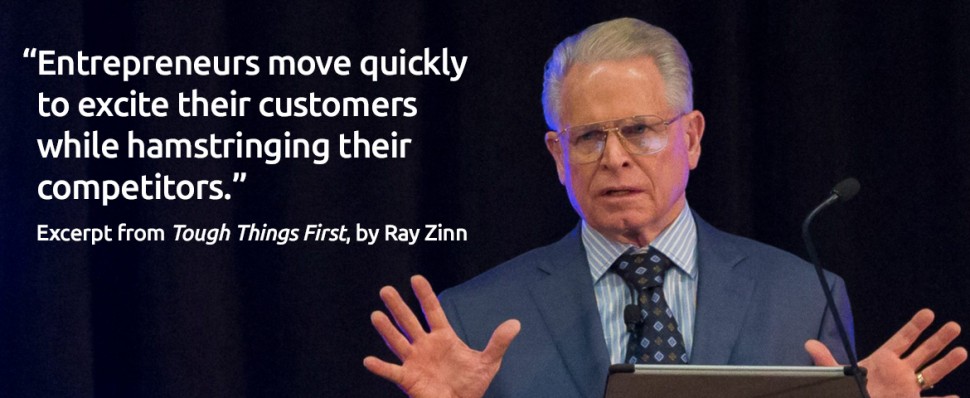
Due Diligence and the Entrepreneur
Read moreRay Zinn and guest host Paul Moore discuss due diligence from the entrepreneur’s perspective. Are you an aspiring entrepreneur or an M&A executive? You will benefit from Ray Zinn’s guidance and years of experience vetting companies.
- Mar292017
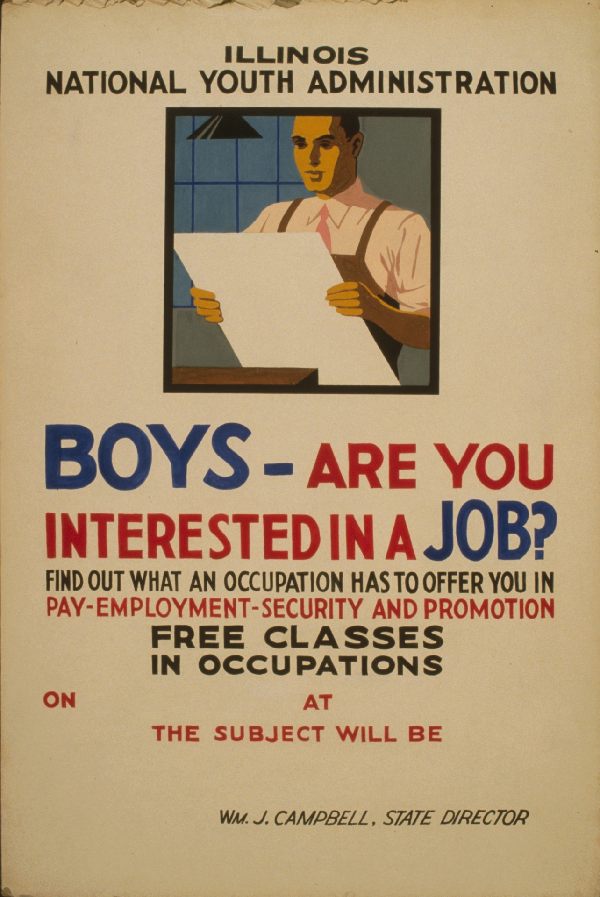
Talent Wars
Read moreCompanies large and small find themselves in direct competition for talent, but is it really a war and far will employers go? In this Tough Tings First podcast, Ray Zinn talks about what it means to be in a seller’s market.
- Mar222017
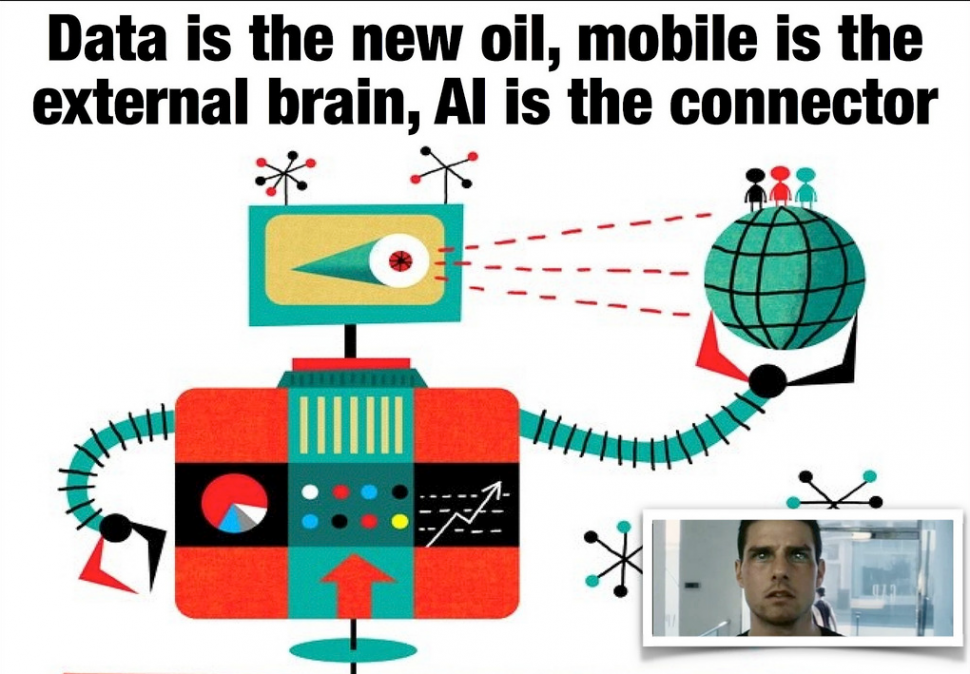
AI and IoT
Read moreSome call it a top priority for businesses in 2017; Be focused more on Artificial Intelligence and the Internet of Things, but is it always possible? In this Tough Tings First podcast, Ray Zinn talks about the basics of AI and IOT, and how to make them part of your business plan.
- Mar152017
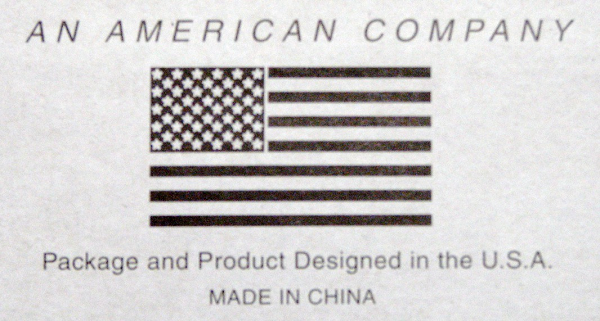
American Made
Read moreIs it possible to build a successful business that uses American manufacturing? In this Tough Things Fist Podcast, Ray Zinn considers what it takes to be Made in America in 2017.
- Mar082017

Religious Tolerance
Read morePolitics and religion, often taboo at the social dinner table, but has it gotten so far that it has stifled free speech? In this Tough Things First Podcast, Ray Zinn talks about the importance of religious tolerance.
- Mar032017

Trump, Tech and Business
Read moreDonald Trump’s first months in office are proving to be unpredictable, but not in all cases. Tough Things First guest host Rob Artigo, talks with Ray Zinn and Paul Moore, to get discuss the changing business climate and where it might be headed.
- Mar012017
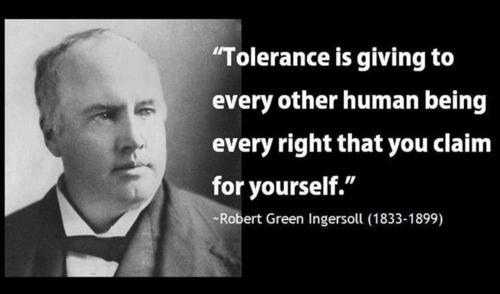
Tolerance is Possible
Read moreAre there different levels of tolerance? In an increasingly diverse world is it even possible to be completely tolerant? In this Tough Tings First podcast, Ray Zinn explores important questions about what tolerance really means.
- Feb222017

Startup Work/Life Balance … It Can Be Done
Read moreLife in startups can be crazy, but working 80 hours weeks is crazy too. Learn how not being an office slave actually makes you successful.
- Feb152017
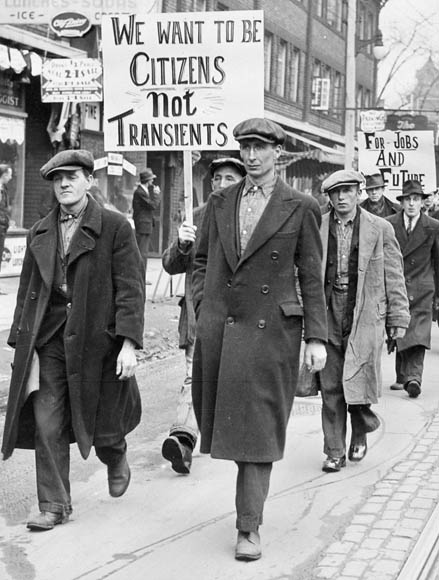
Offshoring and Long Term Costs
Read moreProduct start-ups inevitably face questions about costs, and wonder if it could be cheaper to move manufacturing offshore. There are upsides and downsides. Do you know the risks? Ray Zinn has experience and answers no entrepreneurs should go without. Guest host Rob Artigo returns for another addition of Tough Things First.
- Feb082017

Getting Started – finding a path for the new entrepreneur
Read moreAs an entrepreneur you want to get going … but sometimes it is hard to get started. You may not start like you think you would have started. Make up your mind about your starting path.
- Feb012017
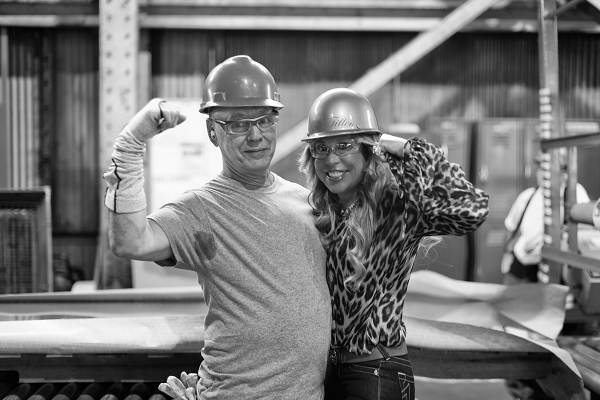
Xers, Millennials and the Future of Work
Read moreThe battle of the generations, is it necessary? Rob Artigo seeks Ray’s advice and thoughts about what makes Gen-Xers and Millennials different and asks, does it matter?
- Jan252017

Against the Grain – don’t leave splinters when creating change
Read moreYou want to get things done, you have no time for sweet talk, you are a go-getter. Are you leaving splinters in your path? You may want to reconsider a different approach.
- Jan182017

The Truth Hurts – how to deliver the truth and not be dispised
Read moreThe truth can be so blunt it hurts, or is it your delivery? Consider the delivery and the amount kindness in your message.
- Jan182017
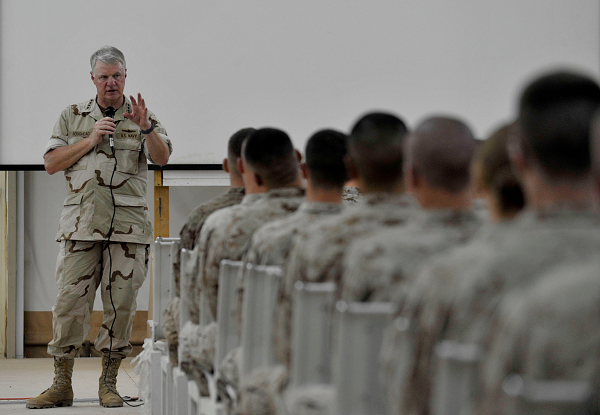
The Buck Stops Up Top – where leadership and responsibility meet
Read moreAre you willing to take the hit? You are the leader and the leader takes ownership and responsibility along with the consequences. If you are not willing to take the heat, don’t think about leading.
- Jan112017

Exercise and the Entrepreneur
Read moreRay Zinn’s motto is “Do the Tough Things First.” For Ray, that has always meant getting up early and exercising. Rob Artigo talk with Ray Zinn about why exercise and good health are linked to business success.
- Jan042017

Not Invented Here – debugging what bugs people about external change
Read more“Not Invented Here” is usually uttered with contempt and sarcasm. What does the NIH bug do to an organization? It isn’t pretty and you need to watch for it.
- Dec212016

Business Goals: It is never too early to start
Read morePlanning for what happens next is as important to success as the business idea itself. Rob Artigo talks with Ray about setting early business goals. Should a long-term goal be set in place from day one?
- Dec142016
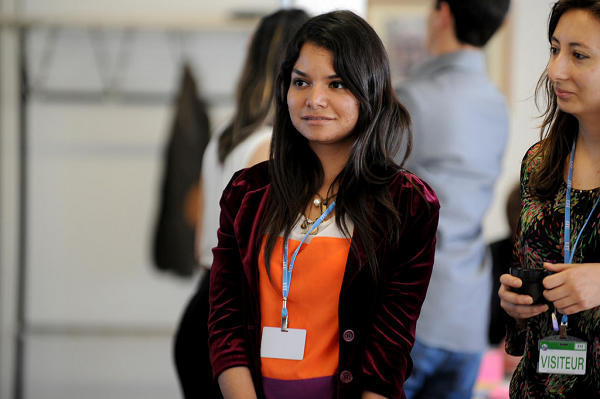
Millennial Compensation – is isn’t all about the Benjamin’s
Read moreThe pool of workers is a constantly changing mix of people with differing values and perspectives. The millennial generation is here and ready to work. How do you attract talent? You have to adapt to their world view.
- Dec072016

Tough Questions for Startups
Read moreStartups are focused on getting venture capital. But should they?
Here are the tough questions they should ask, and will be asked. Understand why you want venture money, and why VCs should care.
- Dec072016
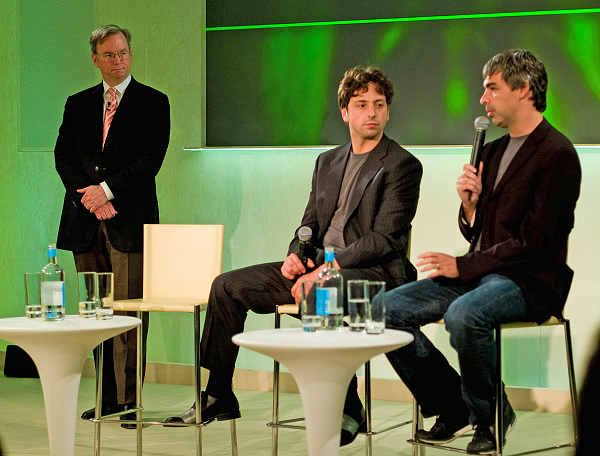
New Blood – wise disruption
Read more“We need new blood to liven up this place.” Have you heard that expression? New blood can invigorate but it can also disrupt to an organization. Finding the line between vigor and negative disruption is key.
- Nov302016
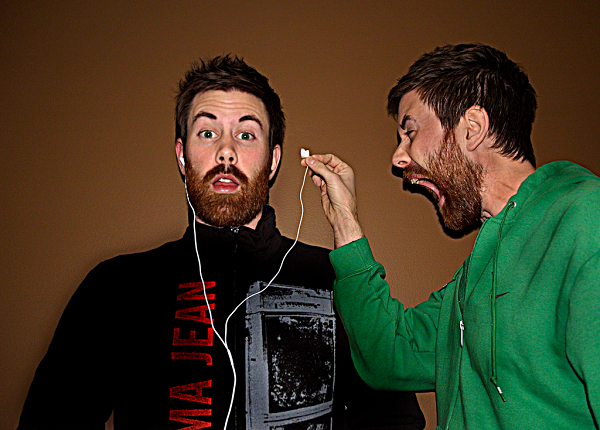
Episode 32: Trying Not Listening – not all input is necessary
Read moreCommunication is the heart of an organization and the heart of relationships. However, there are time we try not to listen to one another. Learn the signs of when listening leads to bad results.
- Nov232016

Episode 31: Lifestyle – lifestyle is more than money, and you can start living it today
Read moreWhat is a good lifestyle? We carry the lifestyle choices we make like baggage. Choose your lifestyle well and live it, today, tomorrow and into your golden years.
- Nov162016

Episode 30: Truth – aligning realities between you company and your customers
Read moreCan you create your own truth? Are your observations truth? What is the truth? Do we actually know the truth? Your truth and your customer’s truth may be different, so learn how to take care in creating your story.
- Nov092016
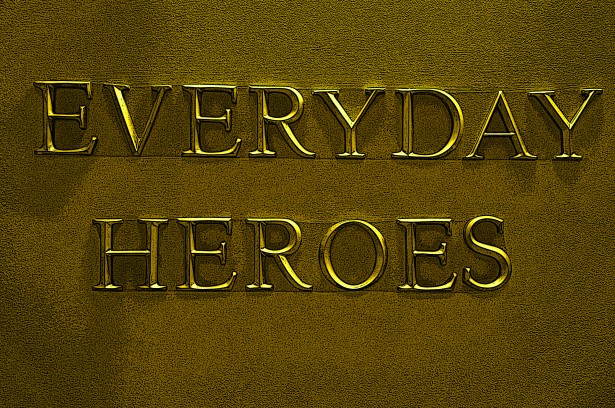
Episode 29: Heroes – you and your team can easily be heroes every day
Read moreWhat are the criteria for a hero? Simple habits make a person a hero in the eyes of those who surround them. Learn how to turn your team members into heroes.
- Nov022016

Episode 28: Friday Talks and Employee Motivation
Read moreLooking for employee inspiration, education and motivation? In this week’s podcast, Ray Zinn talks about the “Friday Talk” technique used at Micrel. These talks were successful in generating and sharing multiple points of view and subjects and helping to condition and reinforce values within every part of a company.
- Oct262016

Episode 27: The American Dream
Read moreIs the American Dream still alive? In this episode, Ray Zinn discuss the role of optimism in the entrepreneurial mindset, the importance of passion and the conviction required to build and lead an enduring business.
- Oct142016

Election Civility
Read moreThis presidential election has demonstrated the lowest levels of common decency and the most disgusting form of vulgar communications, disrespect. Many of us are so confused and upset at the latest attacks that we’re left wondering if we should even take the time to vote. In this podcast, Ray Zinn openly discuss our challenging feelings and ultimately the importance of voting our voice and believing that no matter what the outcome, we have a tremendous country.
- Oct122016

Special Edition: David Greer and Corporate Culture
Read moreDavid Greer — an entrepreneur, angel investor and business coach — discusses with Ray Zinn why corporate culture is so important, and the steps Ray took to create a culture that drove the most consistently profitable semiconductor company in Silicon Valley.
